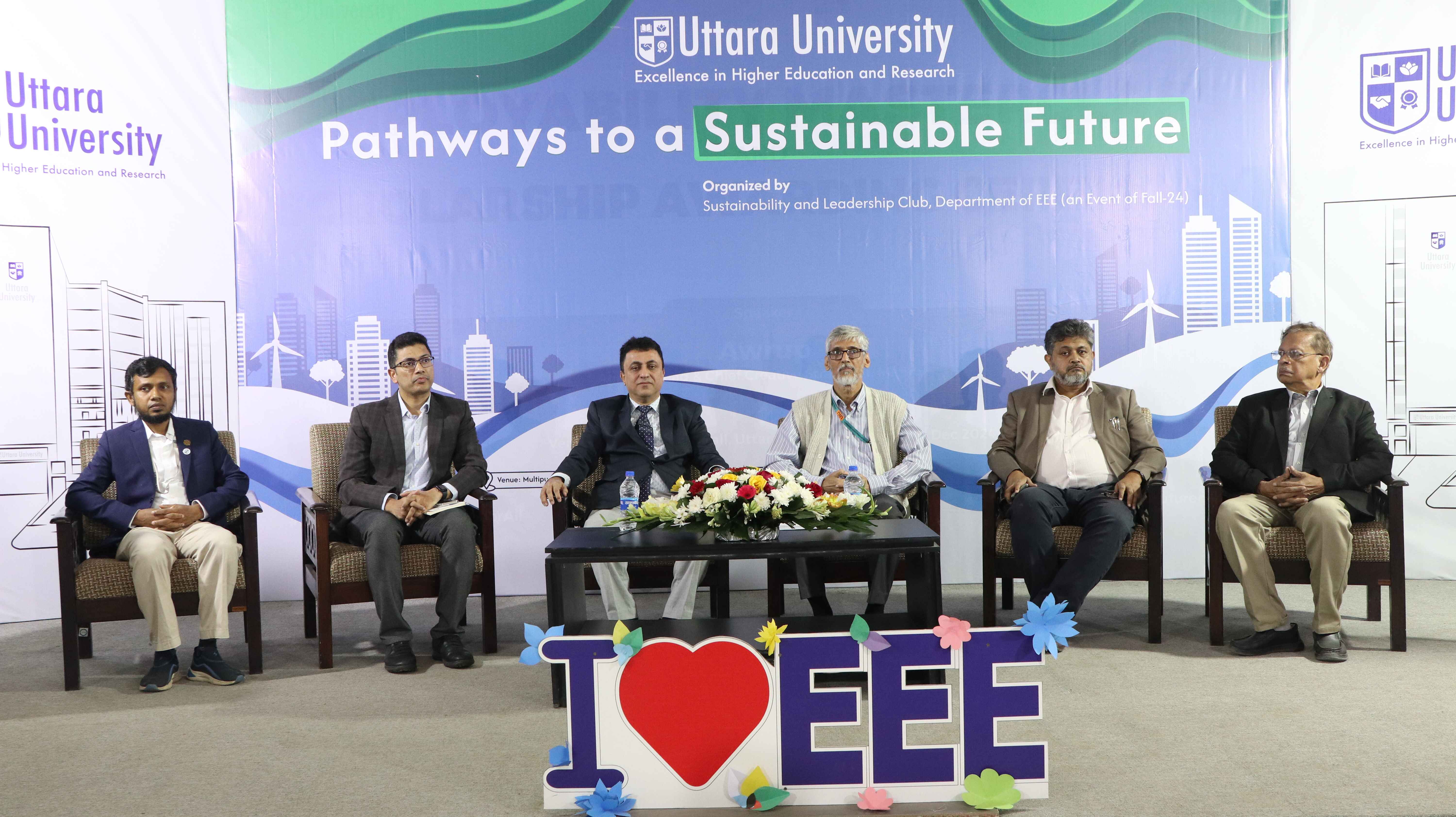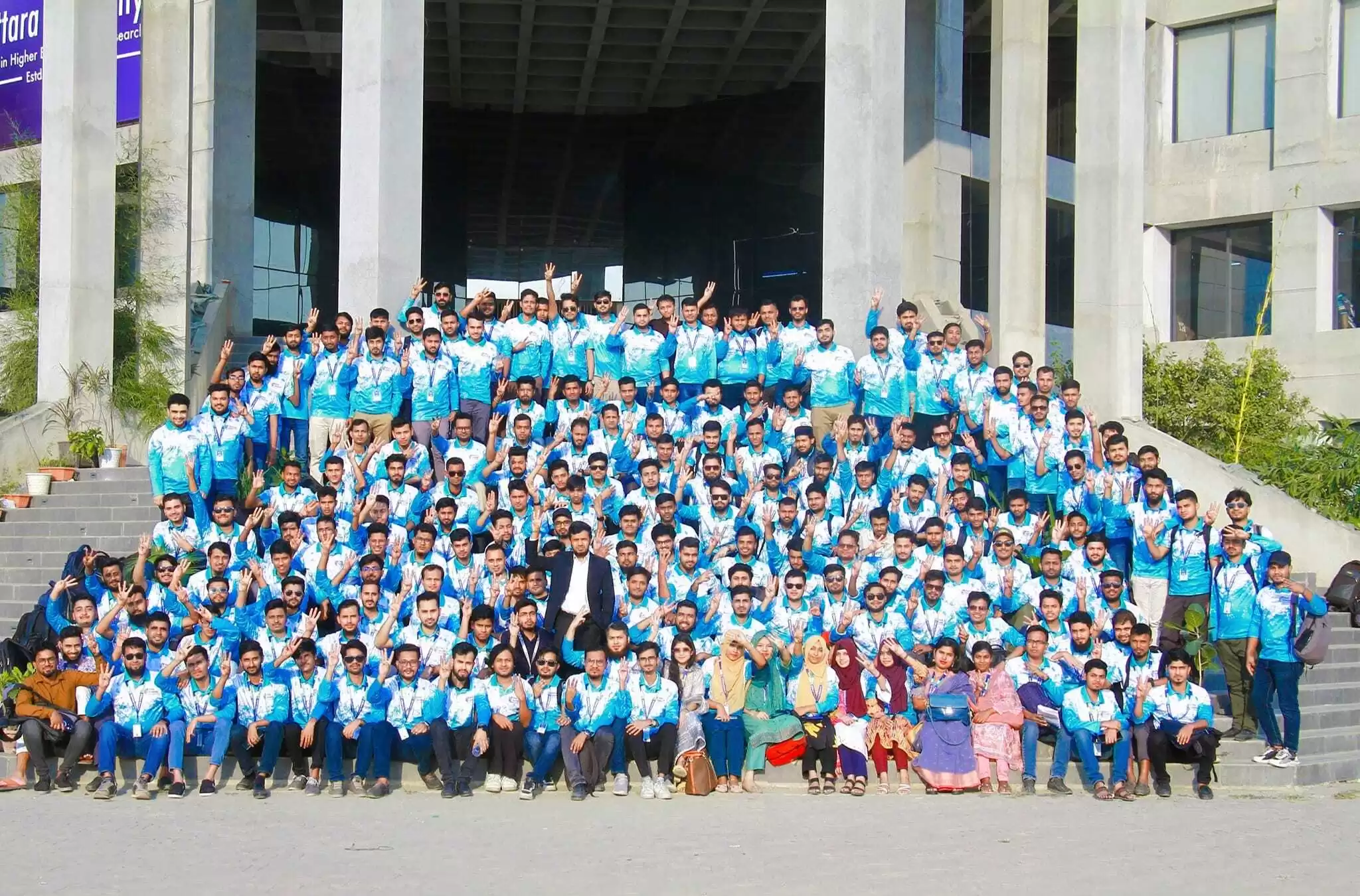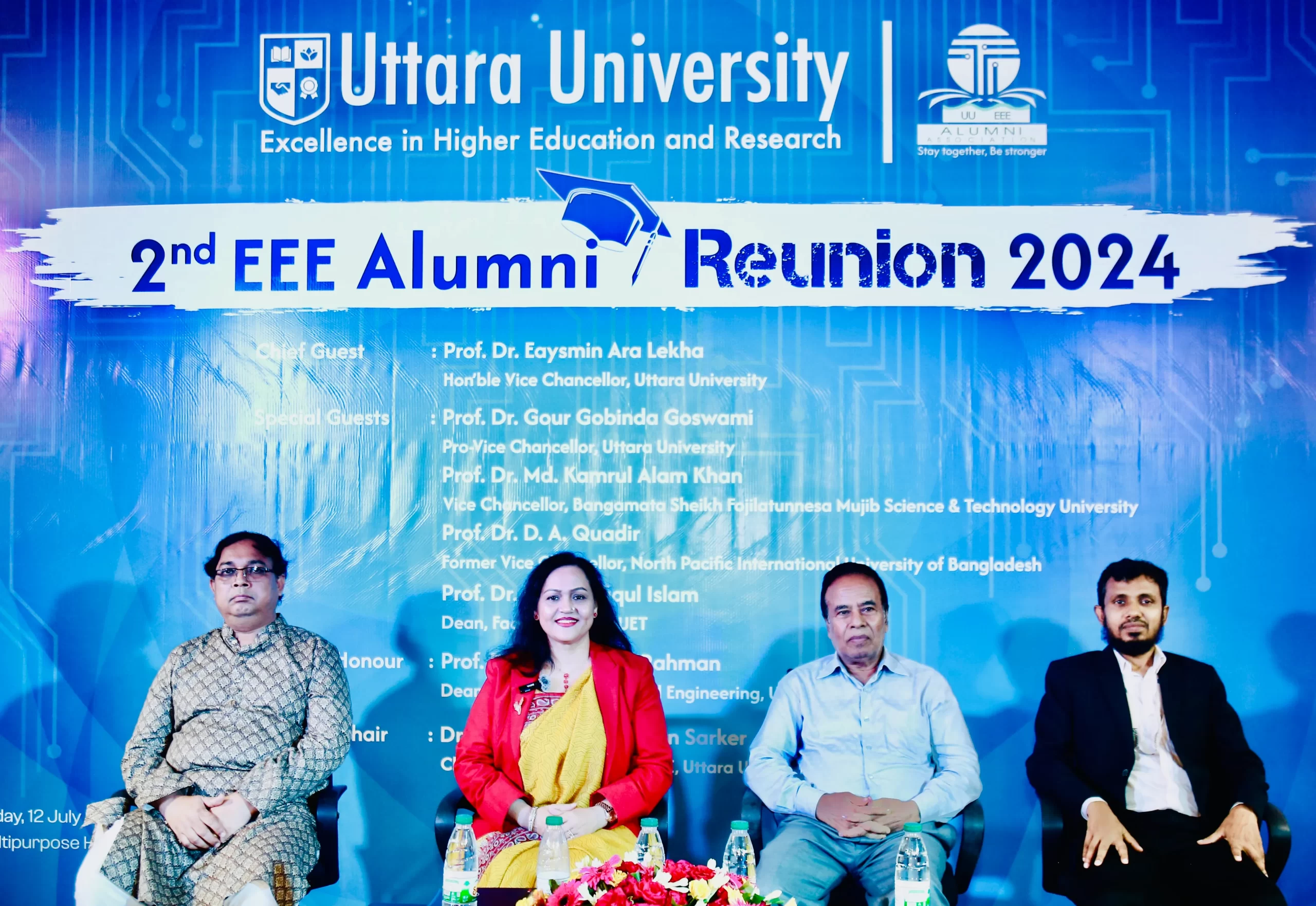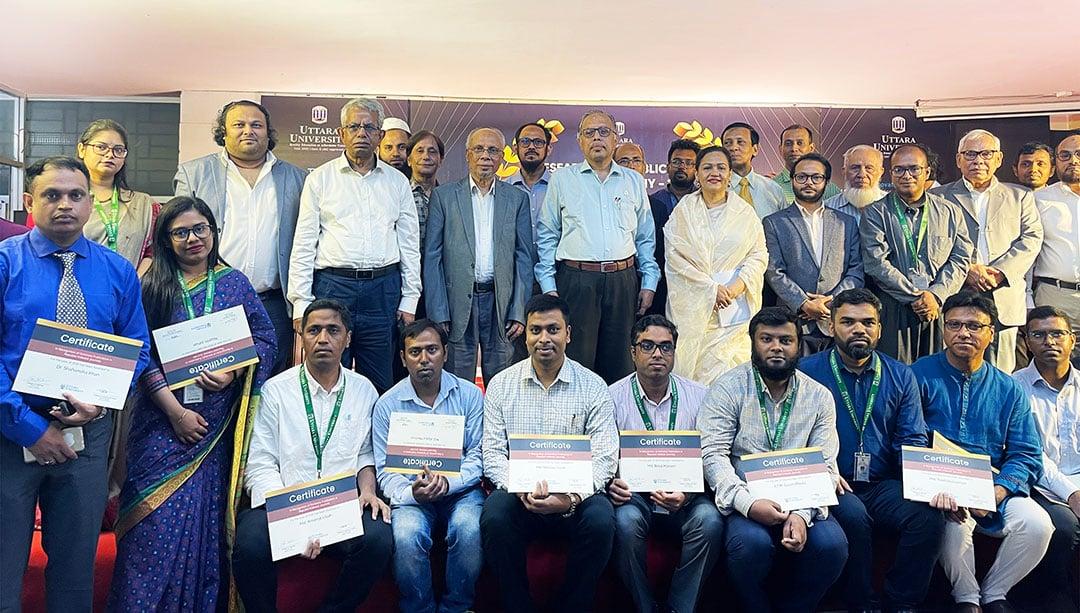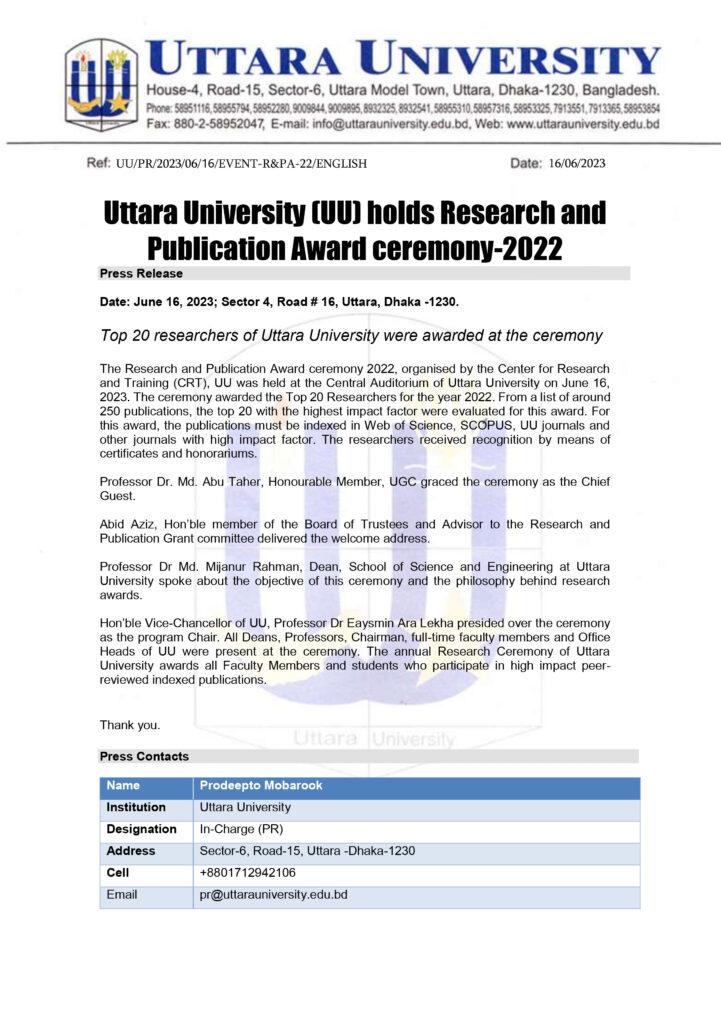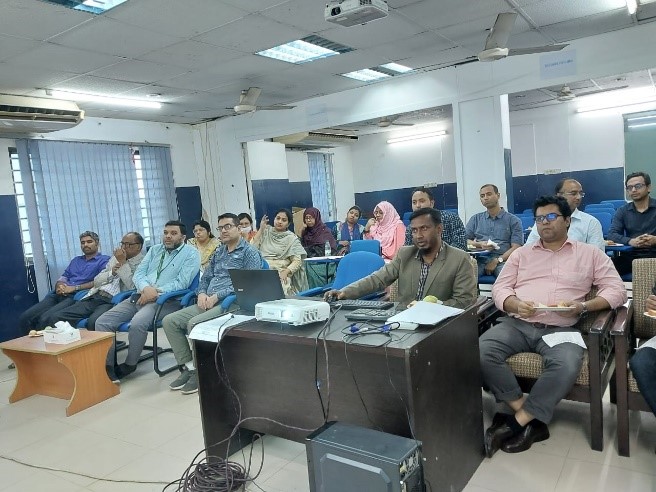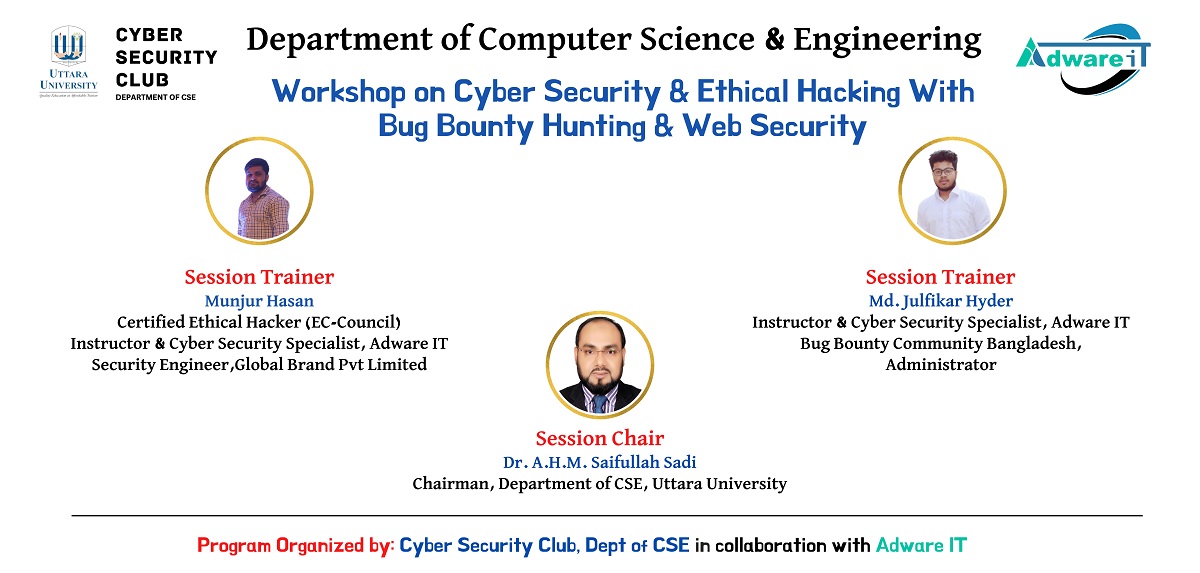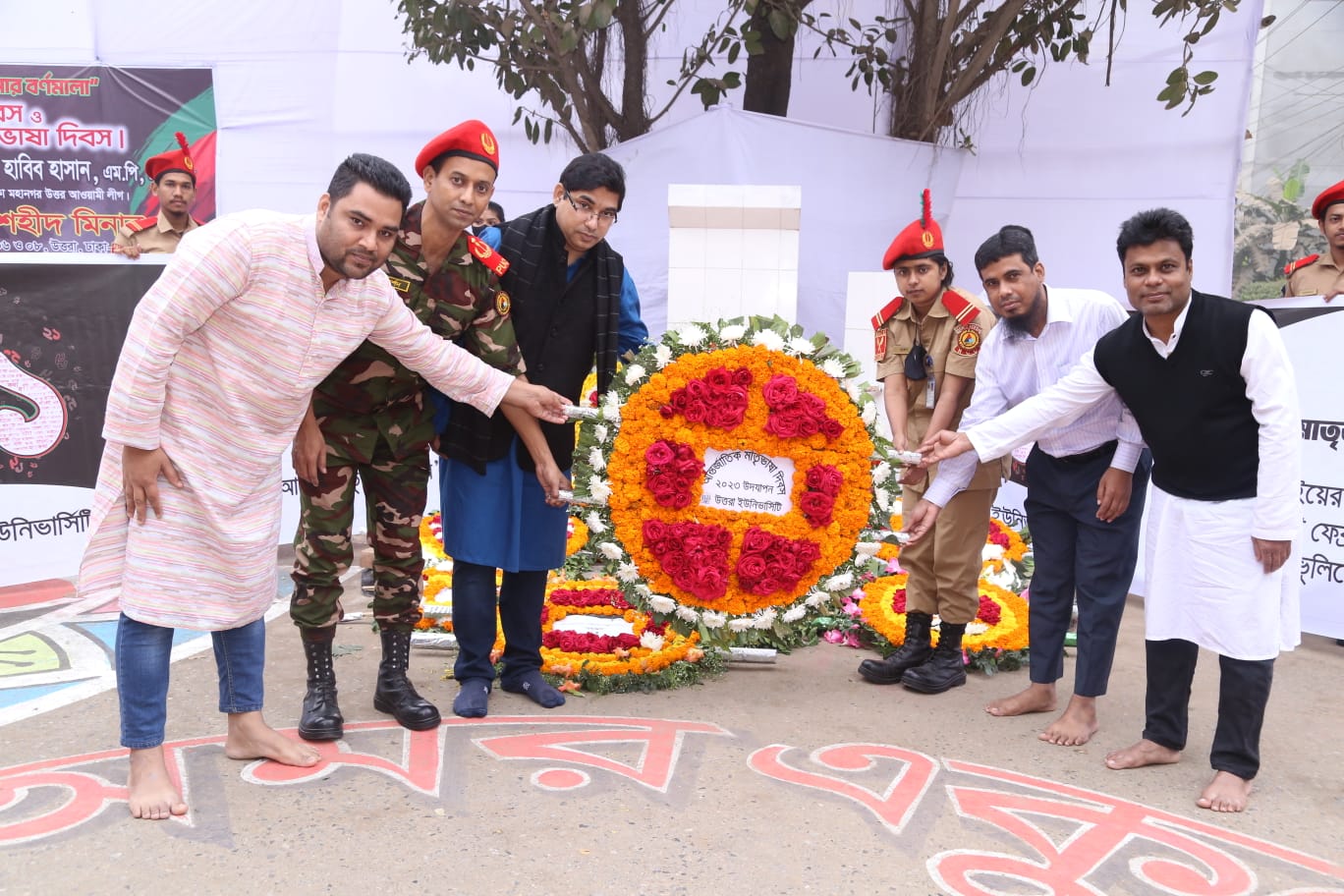Department of Electrical and Electronic Engineering
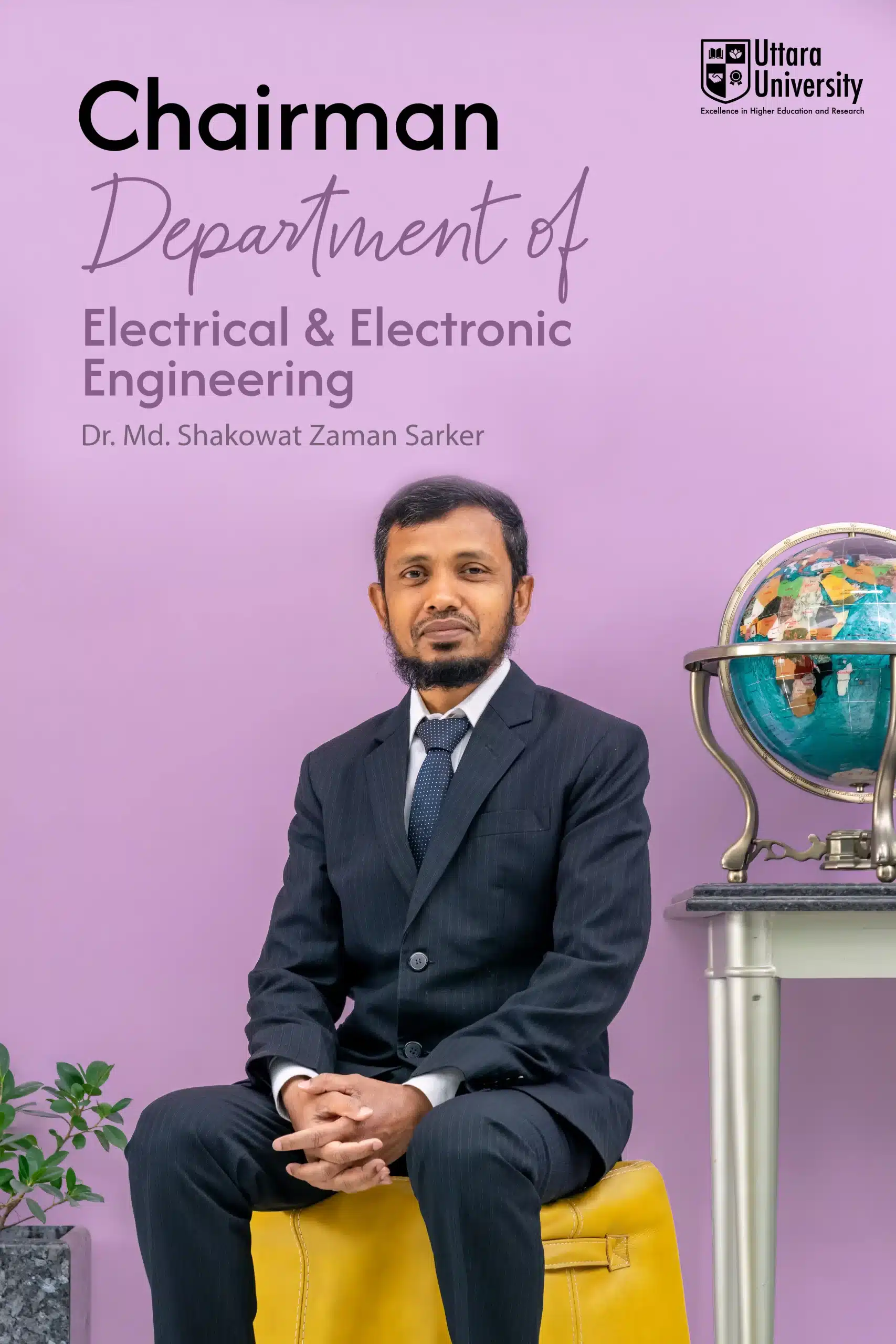
Chairman's Message
Welcome to the Department of Electrical and Electronic Engineering!
We are delighted to extend a warm welcome to all visitors to our departmental webpage. Here at the Department of Electrical and Electronic Engineering, we pride ourselves on our commitment to excellence in education, research, and innovation.
Our department boasts state-of-the-art facilities, including specialized labs such as the Industrial Control and Automation Lab, Embedded System Lab, and VLSI Design Lab. These labs serve as the hub of hands-on learning experiences for our students, allowing them to apply theoretical knowledge to real-world engineering challenges.
In addition to our cutting-edge labs, we are home to the Clean Energy Research Center, dedicated to advancing research in renewable energy sources. Our faculty and researchers are at the forefront of exploring sustainable solutions for the future, working tirelessly to address the global energy challenges we face today.
Speaking of our faculty, we take great pride in our team of highly qualified and esteemed educators. Our faculty members bring a wealth of expertise from both abroad and reputable local universities, ensuring that our students receive a world-class education grounded in both international best practices and local relevance.
At the Department of Electrical and Electronic Engineering, we are committed to delivering a curriculum that meets the highest standards of quality and relevance. We follow an Outcome-Based Education (OBE) approach designed to equip our students with the skills, knowledge, and competencies needed to excel in their chosen fields.
Furthermore, we are actively working towards accreditation from national and international bodies, a testament to our dedication to maintaining excellence in our academic programs.
Whether you are a prospective student, a current student, a researcher, or a member of the wider community, we invite you to explore our webpage and learn more about the exciting opportunities and initiatives taking place within our department.
Thank you for visiting, and we look forward to welcoming you to the Department of Electrical and Electronic Engineering!
Dr. Md. Shakowat Zaman Sarker
Professor and Chairman
Department of Electrical and Electronic Engineering
Uttara University
Department Overview
The Department of Electrical and Electronic Engineering at Uttara University stands as a testament to the institution's commitment to fostering a center of excellence. With a vision rooted in becoming a global leader in engineering education, research, and innovation, the department is poised to meet the evolving demands of the technological world. Its mission is multifaceted: to empower students with application-oriented education for solving complex engineering problems, to instill the highest levels of professionalism and ethical standards in its graduates, and to ensure they are socially responsible engineers. Furthermore, the department is dedicated to providing an environment conducive to interactive learning, groundbreaking research, and sustainable partnerships. The overarching objective is clear: to mold engineers who are not only proficient in their technical domain but also equipped with an analytical prowess, leadership qualities, and a strong moral compass, all while fostering an entrepreneurial spirit and communication skills. This holistic approach ensures that graduates are well-prepared to contribute positively to society and excel in their professional endeavors.
Vision
To be a center of excellence in higher education, research, and innovation to meet global demands in the field of engineering and technology.
Mission
- To produce skilled engineers through application-oriented education to solve complex engineering problems. (DM1)
- To produce ethical and socially responsible engineers bestowed with the highest level of professionalism and technological skills to meet both national and global requirements. (DM2)
- To provide a conducive environment for interactive education, innovative research, sustainable collaboration, responsible entrepreneurship, and continuous education. (DM3)
Medium of Instruction
Uttara University offers all the courses of study primarily in English. Teachers provide instruction to students in the classroom in English. English is also widely used as a medium of communication among the faculties, students, and administrative officials.
Academic Programs
Undergraduate
1. BSc in Electrical & Electronic Engineering
2. BSc in Electrical & Electronic Engineering (For Diploma Holder)
Overview of the Program
BSc in Electrical & Electronic Engineering (BSc in EEE)
The Bachelor of Science in Electrical and Electronic Engineering (BSc in EEE) program is a 158.5-credit, 4-year program consisting of 63 (theoretical and sessional) courses, including Language and General Education (GEd) courses, Basic Science and Mathematics courses, Core and Elective program courses, Other Engineering courses, and a 6-credit Project/Thesis course. General Education (GEd) courses include courses from the Arts and Humanities, Social Sciences, and Business disciplines. The program includes Core courses related to Electrical and Electronic Engineering and provides students with fundamental and broad knowledge of the discipline in addition to analytical and research skills. Laboratory/practical courses supplement the theoretical courses by providing hands-on experiences for the students. Elective courses enable students to gain specialized knowledge and skills in several focus areas, such as electric power engineering, electronics and communication engineering, biomedical engineering, industrial automation, computer engineering, and artificial intelligence.
The program is designed to create ethically sincere, skilled leaders with a strong and broad knowledge base of EEE, along with problem-solving, communication, and entrepreneurship skills. Courses are designed with well-planned Course Learning Outcomes (CLOs) and world-class Teaching-Learning and Assessment Strategies, so that, in aggregate, they achieve the Program Learning Outcomes (PLOs). Through the state-of-the-art holistic approach to learning, the program produces graduates with the attributes and skills currently required for Bangladesh and the world.
Program Educational Objectives (PEOs)
| SL No | Focus | Description of PEO |
|---|---|---|
| PEO 1 | Expertise and competency | Graduates will demonstrate peer-recognized expertise and competence to solve complex engineering problems by designing, analyzing, and evaluating electrical and electronic systems. |
| PEO 2 | Life-long learning and adaptability | Graduates will pursue lifelong learning through research and innovation and adapt to the ever-changing technological landscapes through graduate work, professional development, and self-study. |
| PEO 3 | Ethics and responsibility | Graduates will demonstrate commitment towards ethical and responsible engineering practices and sustainable development of the society. |
| PEO 4 | Leadership and teamwork | Graduates will demonstrate leadership, teamwork, and communication skills to achieve professional and organizational goals and to succeed as entrepreneurs. |
Program Educational Objectives (PEOs)
| SL No | Focus | Description of PLO |
|---|---|---|
| PLO 1 | Engineering knowledge | Apply knowledge of mathematics, natural science, engineering fundamentals, and an engineering specialization as specified in KP1 to KP4, respectively, to the solution of complex engineering problems. |
| PLO 2 | Problem analysis | Identify, formulate, research literature and analyze complex engineering problems, reaching substantiated conclusions using the first principles of mathematics, natural sciences, and engineering sciences (KP1 to KP4). |
| PLO 3 | Design / development of solutions | Design solutions for complex engineering problems and design systems, components, or processes that meet specified needs with appropriate consideration for public health and safety, cultural, societal, and environmental considerations (KP5). |
| PLO 4 | Investigation | Conduct investigations of complex problems using research-based knowledge (KP8) and research methods, including design of experiments, analysis and interpretation of data, and synthesis of information to provide valid conclusions. |
| PLO 5 | Modern tool usage | Create, select and apply appropriate techniques, resources, and modern engineering and IT tools, including prediction and modelling, to complex engineering problems, with an understanding of the limitations (KP6). |
| PLO 6 | The engineer and society | Apply reasoning informed by contextual knowledge to assess societal, health, safety, legal, and cultural issues and the consequent responsibilities relevant to professional engineering practice and solutions to complex engineering problems (KP7). |
| PLO 7 | Environment and sustainability | Understand and evaluate the sustainability and impact of professional engineering work in the solution of complex engineering problems in societal and environmental contexts (KP7). |
| PLO 8 | Ethics | Apply ethical principles and commit to professional ethics and responsibilities, and norms of engineering practice (KP7). |
| PLO 9 | Individual and teamwork | Function effectively as an individual and as a member or leader in diverse teams and in multi-disciplinary settings. |
| PLO 10 | Communication | Communicate effectively on complex engineering activities with the engineering community and society at large, such as being able to comprehend and write effective reports and design documentation, make effective presentations and give and receive clear instructions. |
| PLO 11 | Project management and finance | Demonstrate knowledge and understanding of engineering management principles and economic decision-making and apply these to one’s own work as a member and leader in a team, to manage projects and in multi-disciplinary environments. |
| PLO 12 | Life-long learning | Recognize the need for and have both preparation and ability to engage in independent and life-long learning in the broadest context of technological change. |
Knowledge Profile
| Attribute | |
|---|---|
| KP1 | A systematic, theory-based understanding of the natural sciences applicable to the discipline. |
| KP2 | Conceptually-based mathematics, numerical analysis, statistics and formal aspects of computer and information science to support analysis and modelling applicable to the discipline. |
| KP3 | A systematic, theory-based formulation of engineering fundamentals required in the engineering discipline. |
| KP4 | Engineering specialist knowledge that provides theoretical frameworks and bodies of knowledge for the accepted practice areas in the engineering discipline; much is at the forefront of the discipline. |
| KP5 | Knowledge that supports engineering design in a practice area. |
| KP6 | Knowledge of engineering practice (technology) in the practice areas in the engineering discipline. |
| KP7 | Comprehension of the role of engineering in society and identified issues in engineering practice in the discipline: ethics and the professional responsibility of an engineer to public safety and the impacts of engineering activity – economic, social, cultural, environmental and sustainability. |
| KP8 | Engagement with selected knowledge in the research literature of the discipline. |
Range of Complex Engineering Problems
| Attribute | |
|---|---|
| Depth of knowledge required | CP1: Cannot be resolved without in-depth engineering knowledge at the level of one or more of KP3, KP4, KP5, KP6 or KP8 which allows a fundamentals-based, first principles analytical approach. |
| Range of conflicting requirements | CP2: Involve wide-ranging or conflicting technical, engineering and other issues. |
| Depth of analysis required | CP3: Has no obvious solution and requires abstract thinking and originality in analysis to formulate suitable models. |
| Familiarity of issues | CP4: Involve infrequently encountered issues. |
| Extent of applicable codes | CP5: Outside problems encompassed by standards and codes of practice for professional engineering. |
| Extent of stakeholder involvement and needs | CP6: Involve diverse groups of stakeholders with widely varying needs. |
| Interdependence | CP7: High-level problems, including many component parts or sub-problems. |
Bloom’s Taxonomy Domains
| SL | Cognitive Domain | Psychomotor Domain | Affective Domain | |||
|---|---|---|---|---|---|---|
| 1 | C1 | Remember | P1 | Perception | A1 | Receive |
| 2 | C2 | Understand | P2 | Set | A2 | Respond |
| 3 | C3 | Apply | P3 | Guided Response | A3 | Value |
| 4 | C4 | Analyze | P4 | Mechanism | A4 | Organize |
| 5 | C5 | Evaluate | P5 | Complex Overt Response | A5 | Internalize |
| 6 | C6 | Create | P6 | Adaptation | ||
| P7 | Origination | |||||
Mapping of Department’s Missions to University’s Missions
| Missions | UM 1 | UM 2 | UM 3 |
|---|---|---|---|
| DM1 | 2 | 3 | |
| DM2 | 2 | 3 | |
| DM3 | 3 | 2 |
Mapping of Department’s Missions to PEOs
| PEOs | DM 1 | DM 2 | DM 3 |
|---|---|---|---|
| PEO-1 | 3 | 2 | |
| PEO-2 | 2 | 3 | |
| PEO-3 | 3 | 2 | |
| PEO-4 | 2 | 3 |
Mapping of PEOs to PLOs
| PEO/PLO | PLO1 | PLO2 | PLO3 | PLO4 | PLO5 | PLO6 | PLO7 | PLO8 | PLO9 | PLO10 | PLO11 | PLO12 |
|---|---|---|---|---|---|---|---|---|---|---|---|---|
| PEO-1 | 3 | 3 | 3 | 3 | 2 | 2 | ||||||
| PEO-2 | 2 | 2 | 2 | 3 | 3 | 1 | 1 | 1 | 3 | |||
| PEO-3 | 2 | 1 | 3 | 3 | 1 | 1 | ||||||
| PEO-4 | 1 | 2 | 3 | 3 | 1 |
Mapping of Courses to PLOs
| Title | Details |
|---|---|
| Mapping courses with the PLOs | View |
Guideline For Student
Marks Distribution
| Particulars | Marks |
|---|---|
| Class Attendance + Class Performance | 5% |
| Class Test + Assignment | 10% |
| Mid Term Examination | 25% |
| Semester Final Examination | 50% |
| Viva Voce | 10% |
| Total | 100% |
Admission Requirements (Undergraduate)
Duration of the Program
Bachelor of Science in Electrical and Electronic Engineering program is a 4-year Bachelor degree program consisting of 8 semesters.
Years: 4
Semesters: 8
Admission Requirements
Students can be admitted to the BSc in EEE program if they have obtained a minimum GPA of 2.50 in both SSC and HSC levels separately, or a total of 6.0 GPA points in both cases with a minimum of 2.0 in one level, as per UGC regulation. The admission test is arranged by the School/Department or the University. The admission test assesses a candidate’s mathematical knowledge, language and communication skills, and analytical ability and so on.
Total Minimum Credit Requirement: A student must complete a minimum of 158.5 credits in order to graduate with a BSc in EEE degree.
Total Class Weeks in a Semester: The program consists of 14 class-weeks during a semester.
Minimum CGPA Requirements for Graduation: CGPA 2.0
Maximum Academic Years of Completion: 4 + 3 = 7 years
Candidates are selected for admission based on past academic records, a written test, and a viva voce examination.
Category of Courses
The following category of courses are offered to the students of the program:
1. Language and General Education
- 6 courses (5 theory courses, and 1 sessional/lab course)
- 16.5 credits
2. Basic Sciences and Mathematics courses
- 12 courses (9 theory courses, and 3 sessional/lab courses)
- 31.5 credits
3. Other Engineering courses
- 4 courses (2 theory courses, and 2 sessional/lab courses)
- 9 credits
4. Program courses
Core courses
- 36 courses (20 theory courses, 13 sessional/lab courses; and Project and Thesis, Industrial Attachment, Capstone Project)
- 88 credits
Elective courses
- 5 courses (4 theory courses, and 1 sessional/lab course)
- 13.5 credits
Total number of courses: 63. Total required credits for BSc in EEE degree: 158.5 credits.
In addition, when necessary, foundation courses may be offered to particular students based on admission test results and assessments to prepare those students for pursuing the BSc in EEE degree at the Department of EEE, Uttara University. Foundation courses are not counted among the above-mentioned 63 compulsory courses. A student must earn at least 158.5 credits, excluding the foundation courses, to be eligible for the degree of B.Sc. in Electrical and Electronic Engineering. A summary of all required courses for the degree is given in the table below:
| Course Category | Credits | Percentage of Total Credit | |
|---|---|---|---|
| Theory | Practical | ||
| Language and General Education | 15 | 1.5 | 10.41% |
| Basic Sciences and Mathematics | 27 | 4.5 | 19.87% |
| Other Engineering | 6 | 3 | 5.68% |
| Core Program Courses | 60 | 28 | 55.52% |
| Elective Program Courses | 12 | 1.5 | 8.52% |
| Total | 120 | 38.5 | 100% |
| Total Credits and Total Contact Hours per Week (Theory + Practical) | 158.5 | ||
Foundation Courses
| Course Code | Course Title | Credits | Contact Hours/Week | Pre-requisite | ||
|---|---|---|---|---|---|---|
| Theory | Practical | Theory | Practical | |||
| MAT 1001 | Fundamentals of Engineering Mathematics I | 3 | 3 | |||
| MAT 1003 | Fundamentals of Engineering Mathematics II | 3 | 3 | |||
| ENG 1001 | Basic English | 3 | 3 | |||
| PHY 1001 | Basic Physics | 3 | 3 | |||
| Total credits and total contact hours per week | 12 | 0 | 12 | 0 | ||
| Total Credits and Total Contact Hours per Week (Theory + Practical) | 12 | 12 | ||||
Note: The Dept. of EEE may offer the above-mentioned foundation courses to particular students based on their performances in admission test results and assessments. The foundation courses taken by a student will be mentioned in their academic transcript. However, grades earned in these foundation courses by a student will not be considered in calculating the student’s CGPA.
Language and General Education Courses
| Course Code | Course Title | Credits | Contact Hours/Week | Pre-requisite | ||
|---|---|---|---|---|---|---|
| Theory | Practical | Theory | Practical | |||
| ENG 1101 | English for Technical Communication | 3 | 3 | |||
| ENG 1202 | Developing English Language Skill Sessional | 1.5 | 3 | ENG 1101 | ||
| HUM 1101 | History of Emergence of Bangladesh | 3 | 3 | |||
| HUM 2203 | Engineering Professional Ethics | 3 | 3 | |||
| ACT 3101 | Financial and Managerial Accounting | 3 | 3 | |||
| EEE 3231 | Industrial and Operations Management | 3 | 3 | |||
| Total credits and total contact hours per week | 15 | 1.5 | 15 | 3 | ||
| Total Credits and Total Contact Hours per Week (Theory + Practical) | 16.5 | 18 | ||||
Basic Sciences and Mathematics Courses
| Course Code | Course Title | Credits | Contact Hours/Week | Pre-requisite | ||
|---|---|---|---|---|---|---|
| Theory | Practical | Theory | Practical | |||
| MAT 1101 | Differential and Integral Calculus | 3 | 3 | |||
| MAT 1203 | Ordinary & Partial Differential Equations | 3 | 3 | MAT 1101 | ||
| MAT 2105 | Linear Algebra and Complex Variables | 3 | 3 | MAT 1203 | ||
| MAT 2107 | Coordinate Geometry and Vector Analysis | 3 | 3 | MAT 2105 | ||
| MAT 2209 | Probability and Statistics | 3 | 3 | MAT 2107 | ||
| MAT 3111 | Numerical Analysis | 3 | 3 | MAT 2107 | ||
| PHY 1101 | Physics I-Electricity and Magnetism | 3 | 3 | |||
| PHY 1102 | Physics I Sessional | 1.5 | 3 | |||
| PHY 1203 | Physics II-Optics, Modern Physics, Wave and Oscillation | 3 | 3 | PHY 1101 | ||
| PHY 1204 | Physics II Sessional | 1.5 | 3 | PHY 1203 | ||
| CHE 2101 | Chemistry | 3 | 3 | |||
| CHE 2102 | Chemistry Sessional | 1.5 | 3 | |||
| Total credits and total contact hours per week | 27 | 4.5 | 27 | 9 | ||
| Total Credits and Total Contact Hours per Week (Theory + Practical) | 31.5 | 36 | ||||
Other Engineering Courses
| Course Code | Course Title | Credits | Contact Hours/Week | Pre-requisite | ||
|---|---|---|---|---|---|---|
| Theory | Practical | Theory | Practical | |||
| CEE 2101 | Mechanical Engineering Fundamentals | 3 | 3 | |||
| CEE 1104 | Engineering Drawing | 1.5 | 3 | |||
| CSE 1201 | Structured Programming Language | 3 | 3 | |||
| CSE 1202 | Structured Programming Language Sessional | 1.5 | 3 | |||
| Total credits and total contact hours per week | 6 | 3 | 6 | 6 | ||
| Total Credits and Total Contact Hours per Week (Theory + Practical) | 9 | 12 | ||||
Program Courses
Core courses
| Course Code | Course Title | Credits | Contact Hours/Week | Pre-requisite | ||
|---|---|---|---|---|---|---|
| Theory | Practical | Theory | Practical | |||
| EEE 1101 | Electrical Circuits I | 3 | 3 | |||
| EEE 1102 | Electrical Circuits I Sessional | 1.5 | 3 | |||
| EEE 1203 | Electrical Circuits II | 3 | 3 | EEE 1101 | ||
| EEE 1204 | Electrical Circuits II Sessional | 1.5 | 3 | EEE 1203 | ||
| EEE 2105 | Electronic Circuits I | 3 | 3 | EEE 1203 | ||
| EEE 2107 | Electrical Machine I | 3 | 3 | EEE 1204 | ||
| EEE 2209 | Electronic Circuits II | 3 | 3 | EEE 2105 | ||
| EEE 2210 | Electronic Circuits II Sessional | 1.5 | 3 | EEE 2209 | ||
| EEE 2211 | Electrical Machine II | 3 | 3 | EEE 2107 | ||
| EEE 2212 | Electrical Machine II Sessional | 1.5 | 3 | EEE 2211 | ||
| EEE 2213 | Signals and Linear System Analysis | 3 | 3 | MAT 2107 | ||
| EEE 2217 | Electromagnetic Fields and Waves | 3 | 3 | PHY 1203 | ||
| EEE 3115 | Communication Theory I | 3 | 3 | EEE 2217 | ||
| EEE 3116 | Communication Theory I Sessional | 1.5 | 3 | EEE 3115 | ||
| EEE 3118 | Electrical Services Design | 1.5 | 3 | EEE 1203 | ||
| EEE 3119 | Digital Electronics | 3 | 3 | EEE 2209 | ||
| EEE 3120 | Digital Electronics Sessional | 1.5 | 3 | EEE 3119 | ||
| EEE 3121 | Electrical Properties of Materials | 3 | 3 | PHY 1203 | ||
| EEE 3223 | Power System I | 3 | 3 | EEE 2211 | ||
| EEE 3225 | Industrial and Power Electronics | 3 | 3 | EEE 2209 | ||
| EEE 3226 | Industrial and Power Electronics Sessional | 1.5 | 3 | EEE 3225 | ||
| EEE 3227 | Microprocessors and Interfacing | 3 | 3 | EEE 3119 | ||
| EEE 3228 | Microprocessors and Interfacing Sessional | 1.5 | 3 | EEE 3227 | ||
| EEE 3229 | Digital Signal Processing | 3 | 3 | EEE 2213 | ||
| EEE 3230 | Digital Signal Processing Sessional | 1.5 | 3 | EEE 3229 | ||
| EEE 3200 | Industrial Attachment | 1 | Two Weeks | |||
| EEE 4000 | Project and Thesis | 6 | 6 | |||
| EEE 4136 | Capstone Project | 1.5 | 3 | |||
| EEE 4137 | Communication Theory II | 3 | 3 | EEE 3115 | ||
| EEE 4139 | Power System II | 3 | 3 | EEE 3223 | ||
| EEE 4140 | Power System II Sessional | 1.5 | 3 | EEE 4140 | ||
| EEE 4141 | Control Systems | 3 | 3 | EEE 3229 | ||
| EEE 4142 | Control Systems Sessional | 1.5 | 3 | EEE 4141 | ||
| EEE 4143 | Solid State Devices | 3 | 3 | EEE 3121 | ||
| EEE 4245 | Switchgear and Protection | 3 | 3 | EEE 4139 | ||
| EEE 4246 | Switchgear and Protection Sessional | 1.5 | 3 | EEE 4245 | ||
| Total credits and total contact hours per week | 60 | 28 | 60 | 48 | ||
| Total Credits and Total Contact Hours per Week (Theory + Practical) | 88 | 108 | ||||
Elective Courses
In order to obtain a bachelor’s degree in Electrical and Electronic Engineering from the Department of EEE, a student needs to complete 5 elective courses, including 4 theory courses and 1 lab course, totaling 13.5 credits. A student must choose at least 3 theory courses and 1 lab course from any of the following major study areas: Power Engineering, Electronic Engineering, Communication Engineering, and Computer Engineering. Additionally, the student must choose 1 theory course from other study areas. For example, if a student chooses Power Engineering as their major, they must take 3 theory courses and 1 lab course from the Power Engineering group and take 1 theory course from the other groups, such as Electronic Engineering, Communication Engineering, Computer Engineering, and Interdisciplinary Courses. Any theory course taken must be accompanied by the corresponding lab course and vice versa (if applicable).
Furthermore, a student may choose to take additional courses (3 theory courses and 1 lab course from another major study area) to earn extra credits for a second major. For instance, a student may take 3 theory courses and 1 lab course from the Power Engineering group and then take an additional 3 theory courses and 1 lab course from the Computer Engineering group to complete a double major in Power Engineering and Computer Engineering.
A student will work on their B.Sc. Engg. (EEE) thesis (EEE 4000 Project and Thesis) on a topic related to their major group under the supervision of a faculty member assigned by the department. The policy for assigning thesis topics and supervisors to students in a batch will be established by the department at the beginning of the thesis commencement term (level 4, term 1) for that batch.
Elective Course Distribution
| Study Area | No. of Theory Courses | No. of Lab Courses | Theory Credits | Lab Credits | Total Credits |
|---|---|---|---|---|---|
| Major | 3 | 1 | 3 * 3 = 9 | 1 * 1.5 = 1.5 | 10.5 |
| Others | 1 | - | 1 * 3 = 3 | - | 3 |
| Total | 4 | 1 | 12 | 1.5 | 13.5 |
Study Areas
| Group | Study Area |
|---|---|
| Group I | Power Engineering |
| Group II | Electronic Engineering |
| Group III | Communication Engineering |
| Group IV | Computer Engineering |
Group courses based on study area
| Title | Details |
|---|---|
| Group courses based on study area | View |
Level/Term-wise Distribution of Courses
| Title | Details |
|---|---|
| Level/Term-wise Distribution of Courses | View |
Grading and Evaluation
Grading Scale
| Numerical Score | Letter Grade | Grade Point |
|---|---|---|
| 80-100 | A+ | 4.00 (A plus) |
| 75-79 | A | 3.75 (A regular) |
| 70-74 | A- | 3.50 (A minus) |
| 65-69 | B+ | 3.25 (B plus) |
| 60-64 | B | 3.00 (B regular) |
| 55-59 | B- | 2.75 (B minus) |
| 50-54 | C+ | 2.50 ( C plus) |
| 45-49 | C | 2.25 ( C regular) |
| 40-44 | D | 2.00 |
| 00-39 | F | 00 |
F = Failure, I = Incomplete, W = Withdrawal, R = Repeat, Y = Audit
Grades
A+, A, A-, B+, B, B-, C+, C, D & F
GPA and CGPA
Cumulative Grade Point Average (CGPA) is determined by multiplying the credit hours for a course by the grade points received for that course. Then, the total number of semester grade points for all courses is divided by the total number of credit hours attempted.
CGPA = ∑ (Credit x Grade Points) / Total Credits
Course Withdrawal
If a registered student wants to withdraw from the semester by dropping all courses, or to withdraw from one or more courses, they must apply to the Dean/Chairperson for permission within the designated deadlines. The Dean/Chairperson may allow such withdrawals only for convincing reasons, such as serious or prolonged illness, death of parents, etc. At Uttara University, there are two types of withdrawals:
- Official Withdrawal
- Unofficial Withdrawal
Official Withdrawal
If, before enrollment, a student wants to withdraw from one or more courses for the semester, they should apply to the Dean/Chairperson for permission to withdraw. If, after enrollment, a student wishes to withdraw from one or more or all courses for the semester, they can cancel the enrollment within the dates mentioned in the academic calendar by applying to the Registrar through the department. In that case, if the student has made any partial or full payment of their tuition fees, it will be adjusted to the following semester.
Unofficial Withdrawal
If any student refrains from enrolling in courses for one or more semesters without informing the department, it will be termed as unofficial withdrawal. If, after enrollment, they refrain from attending classes and exams, they will have to pay the tuition fees for the enrolled semester and retake those courses within the next two semesters. If, after admission, any student refrains from taking courses for three consecutive semesters, their admission will be canceled. If they wish to continue their studies after three semesters, they will have to seek re-admission.
Continuation of Courses in Case of Withdrawal
If, after admission, any student completes partial or all the courses in one or more semesters and then refrains from taking courses for one, two, or three semesters, they must follow the following procedures:
- Apply in the prescribed form for continuation. If the student refrains from enrolling in courses for one or two semesters, they must pay an amount equal to the enrollment fees for each semester.
Incomplete (I) Courses
If a student has completed all the requirements of a course except the mid-term or final exam or a project report/term paper, they may apply to the Chairman of the Department for an incomplete grade, explaining the reason for missing the mid-term or final exam. If the reason is acceptable, the Chairman may allow the student to sit for the incomplete exam. For any incomplete course, the course teacher will assign an incomplete grade, which is recorded as "I" on the final grade sheet. A student is permitted to complete an incomplete mid-term exam within the semester or within the next semester and a final exam within the next semester on the makeup date announced by the department. If a student fails to complete the incomplete course within the next semester, their previous marks will be void, and they will earn an F grade in the course, necessitating retaking the course within the next two semesters. If any student wants to complete the incomplete course as a retake, they are allowed to do so. If, after enrollment, any student refrains from attending any “Midterm” or “Final Exam” on the scheduled date of the exam, in that case, an “I” (Incomplete) will be shown on their grade sheet. In that case, the following rules will be applicable.
Rules regarding Mid-term Examination
- The student must apply to the Dean/Chairman for permission to complete the course during the exam period or immediately after the exam. If the department is convinced, they will allow the student to attend a make-up exam right after the scheduled exam. Once permission is granted, the student will pay the required fees and attend the exam.
- If any student is unable to complete the incomplete courses within the next semester, their previous results will be canceled, and they will have to complete the course as a “Retake.”
- If the midterm exam is canceled due to ‘unfair means’ during the exam, the course must be completed in the following semester by attending the midterm exam.
Rules regarding Semester-end Examination
- If a student fails to attend the final exam in any semester, they must complete it within the next semester. In this case, they need to apply using the prescribed form and pay the required fees within the stipulated time according to the academic calendar.
- If a student is unable to complete the incomplete courses within the next semester, their previous results will be canceled, and they will have to complete the course as a “Retake.” They must complete this course within the next two semesters.
- If any student wishes to complete any incomplete course as a “Retake,” they will be allowed to do so.
Retake
- A student earning an "F" grade in a course is required to retake the course in the next semester to earn at least a passing grade. This requires payment of full credit fees for that course. To retake any course, a student must apply for a retake by completing all necessary formalities before the start of the semester in which they wish to retake the course.
- This policy applies to the following types of students:
- Students with an “F” grade in any course
- Students whose exam has been canceled due to unfair means.
- Students who fail to complete any incomplete exam within the next semester
- Students who refrain from attending midterm and final exams (if not officially withdrawn)
Rules regarding Retake
- A student must apply using the prescribed form by the deadline mentioned in the academic calendar at the beginning of the semester. After receiving clearance from the relevant sections of the university, the student must deposit the credit fee for the course. Note that any tuition fee waivers do not apply in this case.
- If a student wishes to repeat any course as a retake, they must do so within the next two semesters following the publication of results, addressing all evaluation criteria for completing the course. If the course is not offered within those two semesters, it must be taken whenever it becomes available.
- A student can retake/repeat any course a maximum of two times. In the grade sheet, "Retake" will be noted for any retake courses.
- If, at the end of the program, a student earns a GPA of less than 3.25 in any course or has a marginal CGPA (i.e., 2.90–2.99 or 2.70–2.74), they may retake those course(s). Alternatively, this situation can be addressed through a discussion with the Controller of Exams (CoE).
Grade Improvement
A student may also choose to improve the grade if s/he earns below grade point 3.0 by retaking the course on payment of 100 % course fees. This type of Retake is dependent on the willingness of the students. In case of a course retake, the transcript of a student shall show the grade which is higher.
Dropout
A student with a GPA of less than 2.00 in a semester will be placed on probation and is allowed a maximum of two semesters to raise their GPA. If the student fails to achieve a CGPA of 2.00 within these two consecutive semesters, they may be granted an additional chance based on the improvement made. However, if insufficient progress is noted, the student may be asked to transfer to another degree program or may face dismissal from the university.
Center for Clean Energy Research
Research Groups
There are currently five research groups under the Committee for Research & Innovation Cell for Sustainable Development (RICSD) of Dept. of EEE.
Convener of RICSD: Md. Rezaul Karim (Assistant Professor, EEE)
Member Secretary: Dr. Kazi Sirajul Islam (Assistant Professor, GED)
| Research Group | Team Leader |
|---|---|
| Materials, Device and Circuit System | Md. Moiful Alam (Assistant Professor, Physics and Coordinator) |
| Renewable Energy | Mahmood Reaz Sunny (Assistant Professor, EEE and Coordinator) |
| Image and Computer Vision | Dr. Md. Shakowat Zaman Sarker (Professor, EEE and Chairman) |
| Mathematics, Machine Learning and Signal Processing | Md. Rezaul Karim (Assistant Professor, EEE) |
| Humanities and Social Science | Dr. Kazi Sirajul Islam (Assistant Professor, GED) |
Resources
| Title | Details |
|---|---|
| Thesis Pre-Defense Registration Form | View |
| Thesis Project Book Template | View |
| Thesis Project Presentation Template | View |
Publications
| Authors | Title | Journal/Conference Proceedings | Publisher | Year | Indexing/Impact Factor |
|---|---|---|---|---|---|
| Md Fatin Ishraque, Akhlaqur Rahman, Sk A Shezan, GM Shafiullah, Ali H Alenezi, Md Delwar Hossen, Noor E Nahid Bintu | Design Optimization of a Grid-Tied Hybrid System for a Department at a University with a Dispatch Strategy-Based Assessment | Sustainability | MDPI | 2024 | Scopus and SCI-E indexed, impact factor: 3.9 |
| M. R. Sunny, T. Ali, K. Aghaloo, K. Wang | Techno-economic feasibility of stand-alone hybrid energy system with battery storage in educational buildings: A case study of Uttara University | Energy and Buildings | Elsevier | 2024 | Scopus and SCI-E indexed, impact factor: 6.7 |
| Md. Moiful Alam, Md. Mosarof Hossain Sarkar, Asif Parvez, Md. Kamrul Alam Khan | Mn-enhanced Li-Ni-Mn-Zn nano-ferrites: Synthesis, characterization, and evaluations of structural, morphological, magnetic, and dielectric features | Journal of Magnetism and Magnetic Materials | Elsevier | 2024 | Scopus Indexed |
| Shakowat Zaman Sarker, Sheikh Farhana Binte Ahmed, Ali Ahmed Ave, Tahsin Abar Nabil | A Hybrid Pre-Processing Technique for Stacking Ensemble with Random Forest as a Meta Classifier for Heart Disease Classification | Uttara University Journal of Science, Engineering and Technology (UUJSET) | Uttara University | 2023 | Non-indexed |
| Shakowat Zaman Sarker, Sheikh Farhana Binte Ahmed, Ali Ahmed Ave, Tahsin Abar Nabil | A Study on Different SVM Kernels with Suitable Pre-Processing Technique and Parameter Optimization for Cardiovascular Disease Prediction | 2nd International Conference on Big Data, IoT and Machine Learning (BIM 2023) | Taylor and Francis (CRC Press) | 2023 | Non-indexed |
| Karim, Rezaul; Hasan, Mahmudul; Kundu, Amit Kumar; Ave, Ali Ahmed. | LP SVM with A Novel Similarity function Outperforms Powerful LP-QP-Kernel-SVM Considering Efficient Classification | Informatica | Slovene Society Informatika | 2023 | Q3/Scopus Indexed/H index:39/ Impact factor: 1.90 |
| Kundu, Amit Kumar; Karim, Rezaul; Ave, Ali Ahmed. | Escalating SVM-Efficiency by Sequential QP LP and Slack Variable Analysis | Journal of Computer Science | Science Publications | 2023 | Q4/Scopus Indexed/H index:36/ Impact factor: 1.90 |
| Md. Moiful Alam, A.K.M. Akther Hossain | Impact of Mn-substitution on crystallographic, optical, and magnetic properties of nanocrystalline Li-Ni-Zn ferrites fabricated by the sol-gel autocombustion technique | Physica B: Condensed Matter | Elsevier | 2023 | Scopus Indexed |
| Al Woadud KA, Kumar D, Islam MJ | Obliquely propagating optical wave patterns to the (2+ 1)-dimensional chiral nonlinear Schrödinger equation in the absence and presence of Atangana derivative | Results in Physics | Elsevier | 2023 | Scopus Indexed |
| Md. Tanvir Shahed, Md. Mofizol Haque, Suma Akter, Sumon Mian, Ripan Chandra Shil | IoT-Enabled Smart Solar Energy Management System For Enhancing Smart Grid Power Quality and Reliability | SN Computer Science | Springer | 2023 | Scopus |
| Md. Tanvir Shahed, A. B. M. Harun-Ur Rashid | An Improved Topology of Isolated Bidirectional Resonant DC-DC Converter Based on Wide Bandgap Transistors for Electric Vehicle Onboard Chargers | International Transactions on Electrical Energy Systems | Wiley | 2023 | Scopus |
| Al Woadud KA, Islam MJ, Khan AR | Modified Kudryashov method and its applications to the (2+ 1)-dimensional cubic Klein-Gordon and (3+ 1)-dimensional Zakharov-Kuznetsov equations | International Journal of Physical Research | 2022 | ||
| Md Delwar Hossen, Md Fokhrul Islam, Md Fatin Ishraque, Sk. A. Shezan, S. M. Arifuzzaman | Design and Implementation of a Hybrid Solar-Wind-Biomass Renewable Energy System considering Meteorological Conditions with the Power System Performances | International Journal of Photoenergy | Hindawi | 2022 | |
| M. R. Sunny, M. A. Kabir, R. Islam and S. Nazifa | Smart Meter Data Compression and Load Profile Classification using UMAP and Random Forest | 5th International Conference on Electrical Engineering and Information Communication Technology (ICEEICT) | IEEE | 2021 | Scopus indexed |
| A. Kabir, M. R. Sunny and N. I. Siddique | Assessment of Grid-connected Residential PV-Battery Systems in Sweden - A Techno-economic Perspective | 2021 IEEE International Conference in Power Engineering Application (ICPEA) | IEEE | 2021 | Scopus and CPCI-S indexed |
| Md. Tanvir Shahed, A.B.M. Harun-Ur Rashid | Design of a 10 Bit Low Power Split Capacitor Array SAR ADC | 2021 IEEE International Conference on Signal Processing, Information, Communication & Systems (SPICSCON) | IEEE | 2021 | Scopus |
| M. R. Sunny, M. A. Kabir, I. T. Naheen and M. T. Ahad | Residential Energy Management: A Machine Learning Perspective | 2020 IEEE Green Technologies Conference (GreenTech) | IEEE | 2020 | Scopus and CPCI-S indexed |
| Md Delwar Hossen, Sk A Shezan | Optimization and assessment of a hybrid solar-wind-biomass renewable energy system for Kiribati island | International Journal of Engineering Trends and Technology | 2019 | ||
| A. Kabir, M. R. Sunny, C. Zhang | An Approach to Imbalance Power Management Using Demand Response in an Electricity Balancing Market | 5th International Conference on Advances in Electrical Engineering | IEEE | 2019 | Scopus and CPCI-S indexed |
| Alam, M. M., Haque, R. and Rabbani, K. S | Design and Implementation of a Constant Tension Mid-Upper Arm Circumference (CT-MUAC) device for improved detection of malnutrition in children | Bangladesh Journal of Medical Physics (BJMP) | Biomedical Physics & Technology, University of Dhaka | 2019 | |
| Al Woadud KA, Kumar D, Islam MJ, Kayes MI, Kundu AK | Extraction of solitary wave features to the Heisenberg ferromagnetic spin chain and the complex klein–gordon equations. | International Journal of Applied and Computational Mathematics | Springer | 2019 | |
| Al Woadud KA, Kumar D, Islam MJ, Imrul Kayes M, Joardar AK | Analytic solutions of the chiral nonlinear Schrödinger equations investigated by an efficient approach | International Journal of Physical Research | 2019 | ||
| Khadiza Akter, Golam Sarowar, Sheikh Farhana Binte Ahmed | Close Loop Analysis of a Single Phase High-Efficiency AC-DC CUK Converter with Low Input Current THD and Improved Power Factor | 10th International Conference on Electrical and Computer Engineering (ICECE) | IEEE | 2018 | Non-indexed |
| Joardar, A. K., Kumar, D., & Al Woadud, K. A. | New exact solutions of the combined and double combined sinh-cosh-Gordon equations via modified Kudryashov method. | International Journal of Physical Research | 2018 | ||
| Islam, S. R., Khan, K., & Woadud, K. A. | Analytical studies on the Benney–Luke equation in mathematical physics | Waves in Random and Complex Media | Taylor and Francis | 2018 | |
| A.A Amin, M. S. Islam, A.A.M. Masud, M. N. H. Khan | Design and Performance Analysis of 1.8 GHz Low Noise Amplifier for Wireless Receiver Application | The Indonesian Journal of Electrical Engineering and Computer Science (IJEECS) | 2017 | Scopus Indexed Cite score:2.9 | |
| Ahmed Al Amin(1*), Md. Shoriful Islam(2), M. A. Masud(3), N. H. Khan(4), J. W. A. Zavala(5), M. M. U. Islam(6) | Design and Performance Analysis of 3.4 GHz Rectangular Microstrip Patch Antenna for Wireless Communication Systems | International Journal on Communications Antenna and Propagation (IRECAP) | 2017 | Scopus Indexed Cite score:2.7 | |
| Al Amin, A., Islam, M. S., Al Woadud, K. A., Islam, M. J., & Imrul Kayes, M. | Estimation of Optimum Number of Poles for Random Signal by Yule-Walker Method | Telkomnika | Telkomnika | 2017 | Scopus Indexed |
| Noor, S., Khan, M. N. H., & Al Woadud, K. A. | Cost and Efficiency Analysis of PV Transformer-Less Inverter Topology to Grid Connection | European Journal of Engineering Research and Science | 2017 | ||
| MD. N.H. Khan, MD. Kamruzzaman, MD. A. Masud and MD. A. Haq | Wave Shape of Assorted Filters: In a PV Transformer-Less Inverter Topology | World Applied Sciences Journal | 2016 | Non-indexed (Scopus indexed up to 2016) | |
| D. N.H. Khan, MD. M. Alam, MD. A. Masud and A.A. Amin | Importance of High Order High Pass and Low Pass Filters | World Applied Sciences Journal | 2016 | Non-indexed (Scopus indexed up to 2016) | |
| Md. M. Hasan, SK. A Shezan, Md. H. Delwar, Md. T. Anowar, Md. D. Islam, Md. A. Kabir, Md. H. Reduanul | Technological Analysis of a Solar-Wind-Battery-Diesel Hybrid Energy System with Fuzzy Logic Controller | International Journal of Research in Engineering and Science (IJRES) | 2016 | ||
| Md. M. Hasan & Md. A. Kabir, SK. A Shezan, Noman H Khan, Md. T. Anowar, Md. H. Delwar, Md. D. Islam, Md. H. Reduanul | Fuzzy Logic Implementation with MATLAB for Solar-Wind-Battery-Diesel Hybrid Energy System | Imperial Journal of Interdisciplinary Research (IJIR) | 2016 | ||
| MNH Khan, MT Anowar, KJ Ahmad, MM Alam, MS Zahan, MH Delwar | Photovoltaic (PV) Panel to Transformer-Less Inverter Topology: A Review Paper | Elixir International Journal | 2016 | ||
| Md NH Khan, Md T Anowar, Md D Hossen, Md M Alam, KJ Ahmad | PV-Transformer-Less Inverter Topology for Battery Equivalent DC Supply from Leakage Current | International Journal of Electrical & Computer Engineering | 2016 | ||
| M. S. Zahan, M. N. H. Khan, M. M. Alam, M. T. Anowar, M. D. Hossen, K. A. Jamil | Active and Passive Filters: Wave Shapes of Magnitude and Phase Angle | International Journal of Engineering Science and Computing | 2016 | ||
| MT Anowar, MNH Khan, MM Alam, MA Kabir, MD Hossen, MS Zahan, MK Hossain, MM Hasan | A survey of acoustic underwater communications and ways of mitigating security challenges | International Journal of Research in Engineering and Science (IJRES) | 2016 | ||
| Ahmed Al Amin, Devashish Basak, Tania Khadem, Md Delwar Hossen, Md Shoriful Islam | Analysis of modulation and coding scheme for 5th generation wireless communication system | 2016 International Conference on Computing, Communication and Automation (ICCCA) | IEEE | 2016 | |
| M. N. H. Khan, M. M. Alam, M. T. Anowar, M. D. Hossen, K. A. Jamil, M. S. Zahan | Active and Passive Filters: Wave Shapes of Magnitude and Phase Angle | International Journal of Engineering Science and Computing (IJESC) | International Society for Emerging Engineering Researches (iSEER), Europe & PEARL Inc, Asia | 2016 | |
| M. N. H. Khan, M. T. Anowar, M. D. Hossen, K. A. Jamil, M. S. Zahan, M. M. Alam | Effect of Leakage Current in the PV Transformer-Less Inverter Topology | International Journal of Engineering Science and Computing (IJESC) | International Society for Emerging Engineering Researches (iSEER), Europe & PEARL Inc, Asia | 2016 | |
| M. N. H. Khan, M. T. Anower, K. J. Ahmad, M. M. Alam, M. S. Zahan and M. D. Hossen | Photovoltaic (PV) Panel to Transformer-Less Inverter Topology: A Review Paper | Elixir International Journal (Elixir Elec. Eng.) | 2016 | ||
| M. T. Anowar, M. N. H. Khan, M. A. Kabir, M. D. Hossen, M. M. Alam, M. R. Sunny, M. M. Hsasan | Application of Dedicated Short-Range Communication within M-Commerce and Intelligent Transportation Services, and its global adaptation using RFID technology | Imperial Journal of Interdisciplinary Research (IJIR) | 2016 | ||
| M. T. Anowar, M. N. H. Khan, M. M. Alam, M. A. Kabir, M. D. Hossen, M. S. Zahan, M. K. Hossain and M. M. Hasan | A Survey of Acoustic Underwater Communications and Ways of Mitigating Security Challenges | International Journal of Research in Engineering and Science (IJRES) | IAC, Hyderabad, India | 2016 | |
| Md. N. H. Khan, Md. T. Anowar and Md. M. Alam | Importance of High Order High Pass and Low Pass Filters | World Applied Sciences Journal (WASJ) | IDOSI Publications L.L.C | 2016 | |
| M. N. H. Khan, M. D. Hossen, M. A. Kabir, M. S. Zahan, K. J. Ahmad, M. M. Alam, M. T. Anower | Proposed PV Transformer-Less Inverter Topology Technique for Leakage Current Reduction | International Journal of Power Electronics and Drive Systems (IJPEDS) | D2 Griya Ngoto Asri, Bangunharjo, Sewon, Bantul, Yogyakarta, Indonesia 55187 | 2016 | |
| Md. N. H. Khan, Md. T. Anower, Md. D. Hossen, Md. M. Alam, K. J. Ahmad | PV-Transformer-Less Inverter Topology for Battery-Equivalent DC Supply from Leakage Current | International Journal of Electrical and Computer Engineering (IJECE) | 2016 |
Student Advisors
| Title | Details |
|---|---|
| Student Advisors | View |
Clubs
EEE Society is the umbrella association of students for co-curricular and extra-curricular activities. Under EEE Society, there are four co-curricular clubs at the department:
President of EEE Society: Md. Delwar Hossen (Associate Professor & Coordinator, EEE)
Cultural and Heritage Club
Moderator: Muhammad Taheruzzaman (Senior Lecturer, EEE)
Members (Faculty and Staff):
- Sheikh Farhana Binte Ahmed (Assistant Professor, EEE)
- Chowdhury Sadeya Naimah (Lecturer, EEE)
- Md. Ariful Islam (Assistant Technical Officer)
- Md. Ajoad Hasan (Lecturer, EEE)
Games and Sports Club
Moderator:Md. Jahirul Islam (Senior Lecturer)
Members (Faculty and Staff):
- Md. Maniruz Zaman (Lecturer, EEE)
- Mahmudul Hasan (Lecturer, EEE)
- Md. Mominur Rahman (Lecturer, EEE)
Research and Innovation Club
Moderator:Md. Shahriar Kabir (Senior Lecturer, EEE)
Members (Faculty and Staff):
- Subah Karnine (Lecturer, EEE)
- Shahriar Tarvir Nushin (Lecturer, EEE)
- Md. Naymur Rahman (Assistant Technical Officer)
- Md. Mehedi Hasan Tusar (Lab Instructor)
IEEE UU Student Branch
An IEEE Student Branch serves as a community for students interested in technology and engineering. It provides opportunities for networking, professional development, and collaboration. Student involvement in branch activities, such as conferences, technical meetings, and outreach programs, enhances their skills and connects them with industry professionals.
Executive Committee
| Serial | Name | Designation | Contact |
|---|---|---|---|
| 1 | Dr. Md. Shakowat Zaman Sarker | Chairman, Dept. of EEE and Branch Advisor | - |
| 2 | Zakir Hossain | Senior Lecturer & Branch Counselor | 01687-879253 |
| 3 | Tahsin Abrar Nabil | Research Assistant & Branch Mentor | 01307-768294 |
| 4 | Md. Rakib Uddin | Branch Chair | 01633-965890 |
| 5 | Nurul Amin | Branch Secretary | 01710-715533 |
| 6 | Hasem Ali | Branch Treasurer | 01799-091486 |
| 7 | Saidul Islam Piyash | WebMaster & Publicity Coordinator | 01997-293328 |
| 8 | (i) Hasanur Monim Shihab (ii) Saif Ahmed |
Membership Development Coordinator | 01724-203198 |
| 9 | (i) Md. Ariful Haque (ii) Md. Mohibul Islam Abir |
Program Coordinator | 01404-252571 |
Contact
Zakir Hossain
Branch Counselor
Sr. Lecturer, Dept. of EEE
Cell: +880 1687879253
Email: zakirhossain.bd@ieee.org, zakir.eee@uttarauniversity.edu.bd
Registration form
Academic Committee
| SL No. | Role | Name |
|---|---|---|
| 1 | The Chairman | The Chairman, Dept. of EEE |
| 2 | Member Secretary | Dr. Kazi Sirajul Islam, Assistant Professor, GED |
| 3 | Member | All Faculty Members, Dept. of EEE |
Planning and Development (P & D) Committee
| SL No. | Role | Name |
|---|---|---|
| 1 | The Chairman | The Chairman, Dept. of EEE |
| 2 | Member Secretary | Muhammad Atique Masud, Assistant Professor and Coordinator, EEE |
| 3 | Member | Dr. Md. Shakowat Zaman Sarker (Professor, EEE) |
| 4 | Md. Delwar Hossen (Associate Professor & Coordinator, EEE) | |
| 5 | Md. Rezaul Karim (Assistant Professor, EEE) | |
| 6 | Md. Shafiq Uddin (Assistant Professor, EEE) | |
| 7 | Md. Moiful Alam (Assistant Professor & Coordinator, Physics) | |
| 8 | K. M. Abdul Al Woadud (Assistant Professor, Mathematics) | |
| 9 | Mahmood Reaz Sunny (Assistant Professor & Coordinator, EEE) |
Examination Committee
| SL No. | Role | Name |
|---|---|---|
| 1 | The Chairman | The Chairman, Dept. of EEE |
| 2 | Exam-Chair | Md. Towhiduzzaman (Assistant Professor, Mathematics) |
| 3 | 1st Year Examination Committee | Convener: Ali Ahmed Ave (Lecturer, EEE) |
| 4 | Member | Md. Jahirul Islam (Senior Lecturer, Mathematics) |
| 5 | Member | Muhammad Taheruzzaman (Senior Lecturer, EEE) |
| 6 | Member | Sahinur Rahman (Lecturer, EEE) |
| 7 | Member | Md. Mominur Rahman (Lecturer, EEE) |
| 8 | Member | Mahmudul Hasan (Lecturer, EEE) |
| 9 | Member | Md. Ajoad Hasan (Lecturer, EEE) |
| 10 | 2nd Year Examination Committee | Convener: Md. Shahriar Kabir (Senior Lecturer, EEE) |
| 11 | Member | K. M. Abdul Al Woadud (Assistant Professor, Mathematics) |
| 12 | Member | Dr. Kazi Sirajul Islam (Assistant Professor, GED) |
| 13 | Member | Subah Karnine (Lecturer, EEE) |
| 14 | 3rd Year Examination Committee | Convener: Zakir Hossain (Senior Lecturer, EEE) |
| 15 | Member | Md. Rezaul Karim (Assistant Professor, EEE) |
| 16 | Member | Md. Shamsul Islam (Lecturer, EEE) |
| 17 | Member | Md. Maniruz Zaman (Lecturer, EEE) |
| 18 | Member | Chowdhury Sadeya Naimah (Lecturer, EEE) |
| 19 | 4th Year Examination Committee | Convener: Sheikh Farhana Binte Ahmed (Assistant Professor, EEE) |
| 20 | Member | Mahmood Reaz Sunny (Assistant Professor & Coordinator, EEE) |
| 21 | Member | Dr. Md. Sultan Mahmud (Assistant Professor, EEE) |
| 22 | Member | Md. Maniruz Zaman (Lecturer, EEE) |
| 23 | Set-B Exam Committee | Convener: Md. Jahirul Islam (Senior Lecturer, Mathematics) |
| 24 | Member | Exam Chair: Md. Towhiduzzaman (Assistant Professor, Mathematics) |
| 25 | Member | All Exam Conveners (1st Year, 2nd Year, 3rd Year, and 4th Year) |
| 26 | Member | Md. Mominur Rahman (Lecturer, EEE) |
Credit Transfer and Course Equivalency Committee
| SL No. | Role | Name |
|---|---|---|
| 1 | The Chairman | The Chairman, Dept. of EEE |
| 2 | Convener | Md. Delwar Hossen (Associate Professor & Coordinator, EEE) |
| 3 | Member | Md. Shahriar Kabir (Senior Lecturer, EEE) |
| 4 | Member | Shahriar Tarvir Nushin (Lecturer, EEE) |
Outcome Based Education (OBE) and Committee for Continuous Quality Improvement (CQI)
| SL No. | Role | Name |
|---|---|---|
| 1 | The Chairman | The Chairman, Dept. of EEE |
| 2 | Convener | Mahmood Reaz Sunny (Assistant Professor, EEE & Coordinator) |
| 3 | Member | Exam Chair |
| 4 | Member | All Exam Conveners |
Note: CQI always needs to report and update its activities to Program Self-Assessment Commitee (PSAC) [vi]
Program Self-Assessment Committee (PSAC) [Selected by IQAC]
| SL No. | Role | Name |
|---|---|---|
| 1 | Member | Dr. Md. Shakowat Zaman Sarker (Professor, Chairman EEE) |
| 2 | Member | Mahmood Reaz Sunny (Assistant Professor & Coordinator, EEE) |
| 3 | Member | Dr. Kazi Sirajul Islam (Assistant Professor, GED) |
Course Offering Committee
| SL No. | Role | Name |
|---|---|---|
| 1 | The Chairman | The Chairman, Dept. of EEE |
| 2 | Convener | Muhammad Atique Masud (Assistant Professor and Coordinator, EEE) |
| 3 | Member | Md. Shahriar Kabir (Senior Lecturer, EEE) |
Course Load Distribution Committee
| SL No. | Role | Name |
|---|---|---|
| 1 | The Chairman | The Chairman, Dept. of EEE |
| 2 | Convener | Md. Moiful Alam (Assistant Professor, Physics & Coordinator) |
| 3 | Member | Md. Jahirul Islam (Senior Lecturer, Mathematics) |
| 4 | Member | Zakir Hossain (Senior Lecturer, EEE) |
| 5 | Member | Chowdhury Sadeya Naimah (Lecturer, EEE) |
Class Routine Committee
| SL No. | Role | Name |
|---|---|---|
| 1 | The Chairman | The Chairman, Dept. of EEE |
| 2 | Convener | Md. Tanvir Shahed (Assistant Professor, EEE) |
| 3 | Adviser | Md. Towhiduzzaman (Assistant Professor, Mathematics) |
| 4 | Member | Md. Shamsul Islam (Lecturer, EEE) |
| 5 | Member | Md. Sahinur Rahman (Lecturer, EEE) |
| 6 | Member | Shahriar Tarvir Nushin (Lecturer, EEE) |
| 7 | Member | Subah Karnine (Lecturer, EEE) |
| 8 | Member | Md. Maniruz Zaman (Lecturer, EEE) |
| 9 | Member | Tahsin Abrar Nabil (Research Assistant, EEE) |
Exam Routine Committee
| SL No. | Role | Name |
|---|---|---|
| 1 | The Chairman | The Chairman, Dept. of EEE |
| 2 | Convener | Asif Parvez (Assistant Professor, Physics) |
| 3 | Member | Exam Chair |
| 4 | Member | Md. Ajoad Hasan (Lecturer, EEE) |
| 5 | Member | Md. Mominur Rahman (Lecturer, EEE) |
| 6 | Member | Mahmudul Hasan (Lecturer, EEE) |
Program and Event Organization Committee
| SL No. | Role | Name |
|---|---|---|
| 1 | The Chairman | The Chairman, Dept. of EEE |
| 2 | Convener | K. M. Abdul Al Woadud (Assistant Professor, Mathematics) |
| 3 | Member | Asif Parvez (Assistant Professor, Physics) |
| 4 | Member | Md. Jahirul Islam (Senior Lecturer, Mathematics) |
| 5 | Member | Md. Mominur Rahman (Lecturer, EEE) |
| 6 | Technical Support | Md. Chand Ali (Assistant Professor, English) |
| 7 | Technical Support | Md. Shahriar Kabir (Senior Lecturer, EEE) |
| 8 | Technical Support | Tahsin Abrar Nabil (Research Assistant) |
| 9 | Technical Support | Md. Atiq Wadud Lison (IT Support Assistant) |
EEE Society Committee
| 1 | The Chairman | The Chairman, Dept. of EEE |
| 2 | President | Md. Delwar Hossen (Associate Professor & Coordinator, EEE) |
| Name of the Clubs | Moderator | Members |
| Cultural and Heritage Club | Muhammad Taheruzzaman (Senior Lecturer, EEE) |
1. Mahmud Reaz Sunny (Assistant Professor, EEE & Coordinator) 2. Md. Chand Ali (Assistant Professor, English) 3. Md. Mahmudul Hasan (Assistant Technical Officer) 4. A.M.F.R.S Bin K. Ayub (Lab Instructor) |
| Sustainability and Leadership Club | Dr. Kazi Sirajul Islam (Assistant Professor, GED) |
1. Sheikh Farhana Binte Ahmed (Assistant Professor, EEE) 2. Chowdhury Sadeya Naimah (Lecturer, EEE) 3. Md. Ariful Islam (Assistant Technical Officer) 4. Md. Ajoad Hasan (Lecturer, EEE) |
| Games and Sports Club | Md. Jahirul Islam (Senior Lecturer, Mathematics) |
1. Md. Maniruz Zaman (Lecturer, EEE) 2. Mahmudul Hasan (Lecturer, EEE) 3. Md. Mominur Rahman (Lecturer, EEE) |
| Research and Innovation Club | Md. Shahriar Kabir (Senior Lecturer, EEE) |
1. Subah Karnine (Lecturer, EEE) 2. Shahriar Tarvir Nushin (Lecturer, EEE) 3. Md. Naymur Rahman (Assistant Technical Officer) 4. Md. Mehedi Hasan Tusar (Lab Instructor) |
IEEE Student Branch
| SL No. | Role | Name |
|---|---|---|
| 1 | The Chairman | The Chairman, Dept. of EEE |
| 2 | Counsellor | Muhammad Taheruzzaman (Senior Lecturer, EEE) |
| 3 | Mentor | Zakir Hossain (Senior Lecturer, EEE) |
| 4 | Member | Md. Sahinur Rahman (Lecturer, EEE) |
| 5 | Member | Shahriar Tarvir Nushin (Lecturer, EEE) |
| 6 | Member | Mahmudul Hasan (Lecturer, EEE) |
| 7 | Member | Tahsin Abrar Nabil (Research Assistant) |
| 8 | Technical Support | Md. Naymur Rahman (Assistant Technical Officer) |
Career Development Programme (CDP)
| SL No. | Role | Name |
|---|---|---|
| 1 | The Chairman | The Chairman, Dept. of EEE |
| 2 | Convener | Sheikh Farhana Binte Ahmed (Assistant Professor, EEE) |
| 3 | Member | Dr. Md. Shakowat Zaman Sarker (Professor, Chairman, EEE) |
| 4 | Member | Mahmud Reaz Sunny (Assistant Professor, EEE & Coordinator) |
| 5 | Member | Dr. Kazi Sirajul Islam (Assistant Professor, GED) |
| 6 | Member | Chowdhury Sadeya Naimah (Lecturer, EEE) |
| 7 | Member | Tahsin Abrar Nabil (Research Assistant) |
Program Coordinator for Day and Evening (BSc in EEE)
| SL No. | Role | Name |
|---|---|---|
| 1 | The Chairman | The Chairman, Dept. of EEE |
| 2 | Program Coordinator (Day) | Muhammad Atique Masud (Assistant Professor and Coordinator, EEE) |
| 3 | Program Coordinator (Evening) | Md. Delwar Hossen (Associate Professor, EEE and Coordinator) |
Chief Invigilators’ Committee
| SL No. | Role | Name | |
|---|---|---|---|
| 1 | The Chairman | The Chairman, Dept. of EEE | |
| 2 | Chief Invigilator | Evening Batch | Md. Rezaul Karim (Assistant Professor, EEE) |
| 3 | Regular Batch | K. M. Abdul Al Woadud (Assistant Professor, Mathematics) | |
| 4 | Administrative Support | Exam Chair | |
Project/Thesis Supervision Committee
| SL No. | Role | Name |
|---|---|---|
| 1 | The Chairman | The Chairman, Dept. of EEE |
| 2 | Convener | Md. Tanvir Shahed (Assistant Professor, EEE) |
| 3 | Member | Ali Ahmed Ave (Lecturer, EEE) |
| 4 | Member | Md. Sahinur Rahman (Lecturer, EEE) |
| 5 | Member | Mahmudul Hasan (Lecturer, EEE) |
Lab Supervision and Development Committee
| Lab Room | Supervisor’s Name | Designation | Lab in Charge |
|---|---|---|---|
| Electrical Circuit Lab | Muhammad Atique Masud | Assistant Professor and Coordinator, EEE | Md. Ariful Islam (Assistant Technical Officer) |
| Digital Electronics Lab | Md. Sahinur Rahman | Lecturer, EEE | Md. Masum Islam (Lab Instructor) |
| Embedded Systems Lab | Shahriar Tarvir Nushin | Lecturer, EEE | Md. Mehedi Hasan Tusar (Lab Instructor) |
| Electronics Circuit Lab | Md. Tanvir Shahed | Assistant Professor, EEE | Md. Nahid Hosen Palash (Lab Instructor) |
| Industrial Automation and Robotics Lab | Md. Delwar Hossen | Associate Professor, EEE and Coordinator | Md. Naymur Rahman (Assistant Technical Officer) |
| Power Systems and Protection Lab | Muhammad Taheruzzaman | Senior Lecturer, EEE | Md. Mohaimanul Islam (Lab Instructor) |
| Machine Lab | Md. Shahriar Kabir | Senior Lecturer, EEE | Md. Shaif Anam (Lab Instructor) |
| Physics Lab | Md. Moiful Alam | Assistant Professor, Physics and Coordinator | New Lab In Charge 1 |
| Digital Signal Processing Lab | Md. Rezaul Karim | Assistant Professor, EEE | Md. Mahmudul Hasan (Assistant Technical Officer) |
| VLSI Design Lab | Md. Ajoad Hasan | Lecturer, EEE | Md. Atiq Wadud Lison (IT Support Assistant) |
| Chemistry Lab | Md. Shamsul Islam | Lecturer, EEE | New Lab In Charge 2 |
| Communication Lab | Sheikh Farhana Binte Ahmed | Assistant Professor, EEE | A.M.F.R.S Bin K. Ayub (Lab Instructor) |
Alumni Association Committee
| SL No. | Role | Name |
|---|---|---|
| 1 | The Chairman | The Chairman, Dept. of EEE |
| 2 | Convener | Md. Delwar Hossen (Associate Professor, EEE and Coordinator) |
| 3 | Member Secretary | Md. Chand Ali (Assistant Professor, English) |
| 4 | Member | Md. Rezaul Karim (Assistant Professor, EEE) |
| 5 | Member | K. M. Abdul Al Woadud (Assistant Professor, Mathematics) |
| 6 | Member | Dr. Kazi Sirajul Islam (Assistant Professor, GED) |
| 7 | Member | Asif Parvez (Assistant Professor, Physics) |
| 8 | Member | Ali Ahmed Ave (Lecturer, EEE) |
Departmental Disciplinary, Narcotics & Sexual Harassment Prevention Committee
| SL No. | Role | Name |
|---|---|---|
| 1 | The Chairman | The Chairman, Dept. of EEE |
| 2 | Convener | Md. Shafiq Uddin (Assistant Professor, EEE) |
| 3 | Member Secretary | Sheikh Farhana Binte Ahmed (Assistant Professor, EEE) |
| 4 | Member | All Planning and Development (P & D) Committee Members |
Departmental Branding and Outreach Committee
| SL No. | Role | Name |
|---|---|---|
| 1 | The Chairman | The Chairman, Dept. of EEE |
| 2 | Convener | Md. Shafiq Uddin (Assistant Professor, EEE) |
| 3 | Member Secretary | Sheikh Farhana Binte Ahmed (Assistant Professor, EEE) |
| 4 | Member | All Planning and Development (P & D) Committee Members |
Committee for Research & Innovation Cell for Sustainable Development (RICSD)
| SL No. | Role | Name | |
|---|---|---|---|
| 1 | The Chairman | The Chairman, Dept. of EEE | |
| 2 | Convener | Md. Rezaul Karim (Assistant Professor, EEE) | |
| 3 | Member Secretary | Dr. Kazi Sirajul Islam (Assistant Professor, GED) | |
| Research Group | Team Leader | ||
| 4 | Materials, Device and Circuit System | Md. Moiful Alam (Assistant Professor, Physics and Coordinator) | |
| 5 | Renewable Energy | Mahmood Reaz Sunny (Assistant Professor, EEE and Coordinator) | |
| 6 | Image and Computer Vision | Dr. Md. Shakowat Zaman Sarker (Professor, EEE and Chairman) | |
| 7 | Mathematics, Machine Learning and Signal Processing | Md. Rezaul Karim (Assistant Professor, EEE) | |
| 8 | Humanities and Social Science | Dr. Kazi Sirajul Islam (Assistant Professor, GED) | |
Final Result Scrutiny Committee
| SL No. | Role | Name |
|---|---|---|
| 1 | The Chairman | The Chairman, Dept. of EEE |
| 2 | Convener | Md. Rezaul Karim (Assistant Professor, EEE) |
| 3 | Member | All Full-time Faculty Members |
Job Placement, Industrial Attachment and Higher Education (JPIAHE)
| SL No. | Role | Name |
|---|---|---|
| 1 | The Chairman | The Chairman, Dept. of EEE |
| 2 | Convener | Muhammad Taheruzzaman (Senior Lecturer, EEE) |
| 3 | Member Secretary | Ali Ahmed Ave (Lecturer, EEE) |
| 4 | Member | Md. Shafiq Uddin (Assistant Professor, EEE) |
| 5 | Member | Md. Maniruz Zaman (Lecturer, EEE) |
| 6 | Member | Md. Mominur Rahman (Lecturer, EEE) |
Payment Recovery Unit (PRU)
| SL No. | Role | Name |
|---|---|---|
| 1 | The Chairman | The Chairman, Dept. of EEE |
| 2 | Convener | Dr. Kazi Sirajul Islam (Assistant Professor, GED) |
| 3 | Member | K.M. Abdul Al Woadud (Assistant Professor, Math) |
| 4 | Member | Md. Jahirul Islam (Senior Lecturer, Math) |
Dropout Prevention Unit (DPU)
| SL No. | Role | Name |
|---|---|---|
| 1 | The Chairman | The Chairman, Dept. of EEE |
| 2 | Convener | Dr. Kazi Sirajul Islam (Assistant Professor, GED) |
| 3 | Member | Zakir Hossain (Senior Lecturer, EEE) |
| 4 | Member | Ali Ahmed Ave (Lecturer, EEE) |
Adjunct/Guest/Part-time Faculty Management
| SL No. | Role | Name |
|---|---|---|
| 1 | The Chairman | The Chairman, Dept. of EEE |
| 2 | Convener | Md. Moiful Alam (Assistant Professor, Physics and Coordinator) |
| 3 | Member | Dr. Kazi Sirajul Islam (Assistant Professor, GED) |
| 4 | Member | Ali Ahmed Ave (Lecturer, EEE) |
| 5 | Member | Md. Ajoad Hasan (Lecturer, EEE) |
| 6 | Technical Support | Md. Rafiqul Islam (Section Officer) |
Graduate Program Syllabus Committee
| SL No. | Role | Name |
|---|---|---|
| 1 | The Chairman | The Chairman, Dept. of EEE |
| 2 | Convener | Mahmood Reaz Sunny (Assistant Professor, EEE and Coordinator) |
| 3 | Member | Sheikh Farhana Binte Ahmed (Assistant Professor, EEE) |
| 4 | Member | Zakir Hossain (Senior Lecturer, EEE) |
Lab Facilities
- Electrical Circuits Lab
- Electronic Circuits Lab
- Digital Electronics Lab
- Machine Lab
- Power System Protection Lab
- Power Electronics Lab
- VLSI Lab
- Industrial Automation and Robotics Lab
- Embedded Systems Lab
- Communication Lab
- Computer Lab
- Physics Lab
- Chemistry Lab
Industrial Automation and Robotics Laboratory
Introduction
Welcome to the Industrial Automation and Robotics Laboratory (IAR Lab) at Uttara University, a pioneering initiative designed to bridge the gap between academic knowledge and industry expertise. Recognizing that a four-year undergraduate engineering program may not fully prepare students for immediate industry engagement, the IAR Lab serves as an essential stepping stone, transforming fresh graduates into proficient engineers who are industry-ready.
At the heart of the IAR Lab is a suite of cutting-edge training modules, including electrical service design, motor control circuits, Variable Frequency Drive (VFD) based motor control, Programmable Logic Controllers (PLC), Human Machine Interface (HMI) systems with analog and digital sensors, and Supervisory Control and Data Acquisition (SCADA) systems. These modules reflect the latest technologies prevalent in today’s industries, ensuring that students gain hands-on experience with the tools and techniques they will encounter in the real world.
To further enhance the learning experience, the IAR Lab integrates both elective and compulsory courses within the curriculum, guaranteeing student engagement through practical application of theoretical concepts. Moreover, the lab regularly hosts workshops led by industry experts, fostering a vibrant community of learners who are passionate about embracing and mastering current technologies.
The IAR Lab is committed to evolving alongside the ever-changing industrial landscape, with plans to introduce new modules in response to emerging trends and technologies. This adaptability ensures that the curriculum remains relevant and that students are well-equipped to handle the challenges of modern industry.
Envisioned as a center of excellence, the IAR Lab extends its reach beyond the university walls, offering training opportunities to external students, technology enthusiasts, and industry professionals. This inclusive approach amplifies the lab’s impact, making it a hub for knowledge exchange and professional development.
Above all, the IAR Lab is dedicated to maximizing student potential, providing a transformative educational experience that not only enhances the reputation of Uttara University but also contributes significantly to the development of the engineering workforce. Join us at the IAR Lab, where your journey from academia to industry excellence begins.
Experiments
Motor Control
- Direct on line (DOL) starter by magnetic contactor
- Direct on line (DOL) starter by relay
- Star delta starter (manual system)
- Inter lock system by mc
- Timer based controlling circuit
- Automatic forward/revere by timer
- Sequential load control
- Counter based controlling circuit
- Solenoid valve control with interlock
- Emergency alarm system activation
VFD-based Control
- Motor control by using inverter keypad and potentiometer
- Motor control by inverter - using inverter terminal
- Motor control by inverter - using external potentiometer
- Motor controlling by magnetic contactor
- Relay/contactor interlock circuit
PLC and SCADA based Control and Monitoring
- Plc operated direct on line (DOL) starter
- Plc operated star delta starter
- Sequential load control using PLC (part-a)
- Sequential load control using PLC (part-b)
- Object detection-based control (fwd/rev) system using PLC - proximity sensor
- Object detection-based control (up/down count) system using PLC - photo sensor
- Temperature based control system using RTD sensor and temperature controller
- Automatic temperature control system using PT-100 and PLC analog module
- Solenoid valve control by using selector switch
- Solenoid valve control by using PLC from external push button
- Solenoids valve control system by using PLC from HMI
- Speed, direction and position control of an object by servo motor using PLC and SCADA
- Speed, direction and angle control of an object by servo motor using PLC and SCADA
- Data monitoring and control of proximity (fwd/rev) and photo (up/down count) sensor using PLC and SCADA
Benefits
The Industrial Automation and Robotics Laboratory (IAR Lab) at Uttara University offers a multitude of benefits for both students and the industry:
For Students
Hands-On Experience: Students gain practical skills by working with industry-standard equipment and technologies, preparing them for real-world challenges.
Industry Relevance: The curriculum is designed to reflect current industry practices, ensuring that students learn the most up-to-date methods and tools.
Enhanced Employability: By acquiring relevant skills, students enhance their employability, making them attractive candidates for potential employers.
Expert Guidance: Regular workshops with industry experts provide students with insights into the latest trends and professional advice.
Innovative Thinking: Exposure to cutting-edge technologies encourages innovative thinking and problem-solving abilities.
Networking Opportunities: Interaction with professionals during workshops and training sessions opens doors to valuable networking opportunities.
For Industry
Reduced Training Time: Graduates from the IAR Lab require less on-the-job training, saving time and resources for companies.
Talent Pipeline: The lab serves as a talent pipeline, providing industries with skilled graduates who are ready to contribute from day one.
Collaborative Projects: Industries can collaborate with the lab on projects, driving innovation and research that can benefit their operations.
Custom Training: The lab can offer custom training modules for industry personnel, keeping them abreast of new technologies and methods.
Feedback Loop: Industry feedback can help shape the lab’s curriculum, ensuring it remains aligned with evolving industry needs.
Innovative Thinking: Exposure to cutting-edge technologies encourages innovative thinking and problem-solving abilities.
Community Engagement: By engaging with the lab, industries can demonstrate their commitment to education and community development.
Overall, the IAR Lab fosters a symbiotic relationship between academia and industry, creating a dynamic ecosystem where students are primed for success, and industries are equipped with a skilled workforce ready to tackle the demands of the modern world.
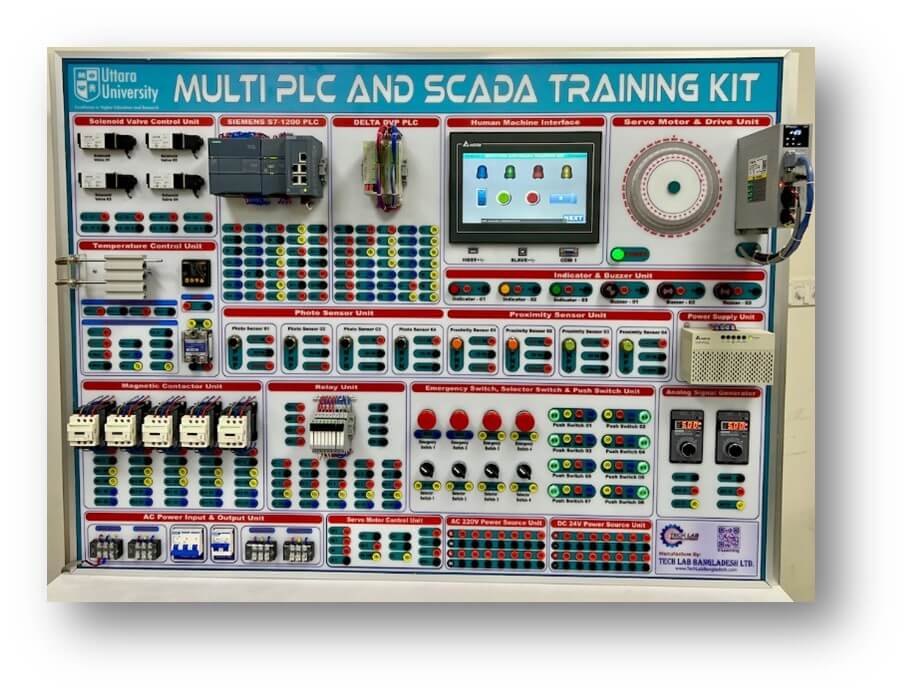
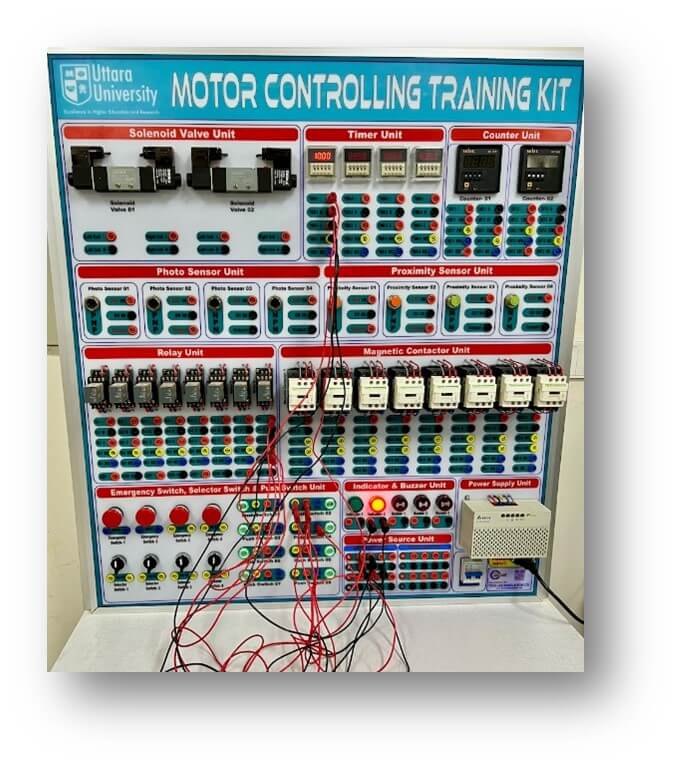
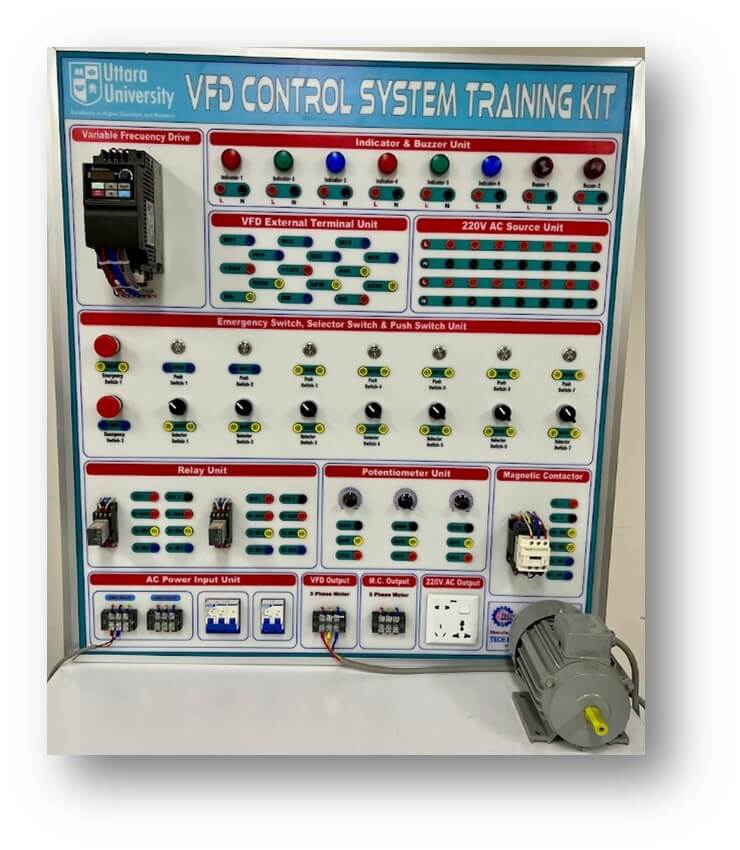
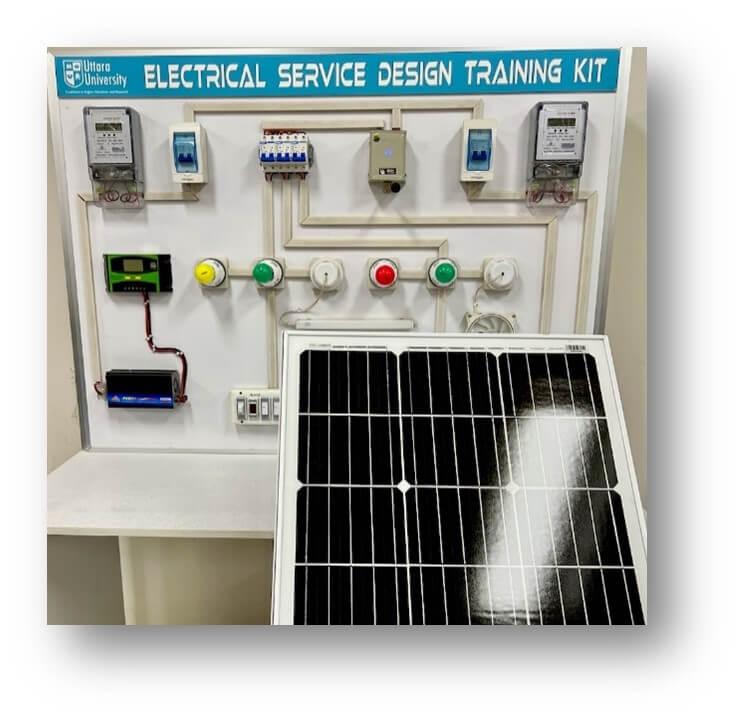
Alumni Association
The Alumni Association (AA) plays a vital role in helping graduates (alumni) stay connected, support one another, and foster ongoing relationships. It provides numerous opportunities for alumni to engage with their alma mater, participate in events, access valuable resources, and contribute to the growth of the department.
Through the AA, graduates can renew ties, share experiences, and collaborate on various initiatives. The association often organizes social gatherings, professional networking events, and mentorship programs, creating a vibrant ecosystem that benefits both alumni and the department. This collaborative spirit not only enhances the alumni experience but also strengthens the university community as a whole.
Online Registration
Constitution
| Title | Details |
|---|---|
| Constitution UUEEEAA (Approved) | View |
Executive Committee

Mohammed Jamiul Akhter Khondaker
President
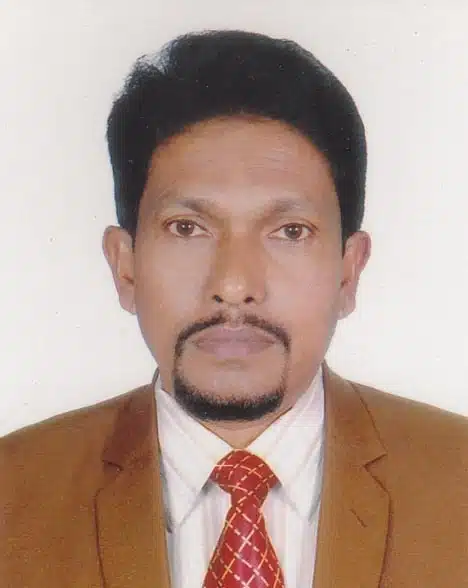
Md. Abdul Haque
Sr. Vice President

Md. Jahangir Alam
Vice President
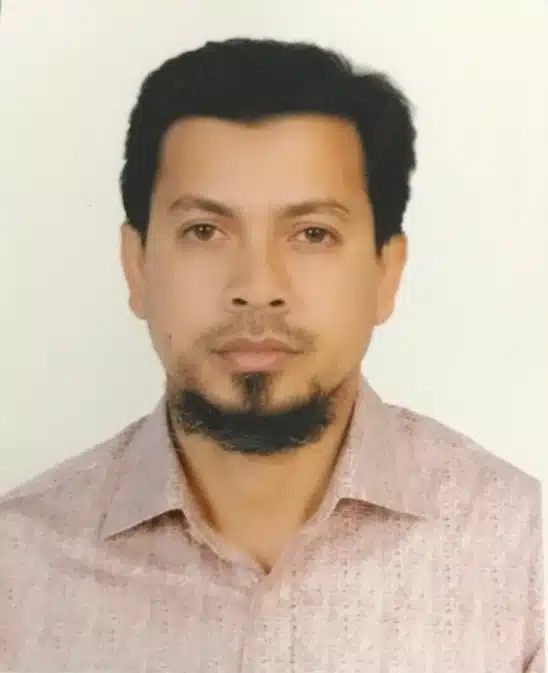
Md. Aktaruzzaman
Vice President
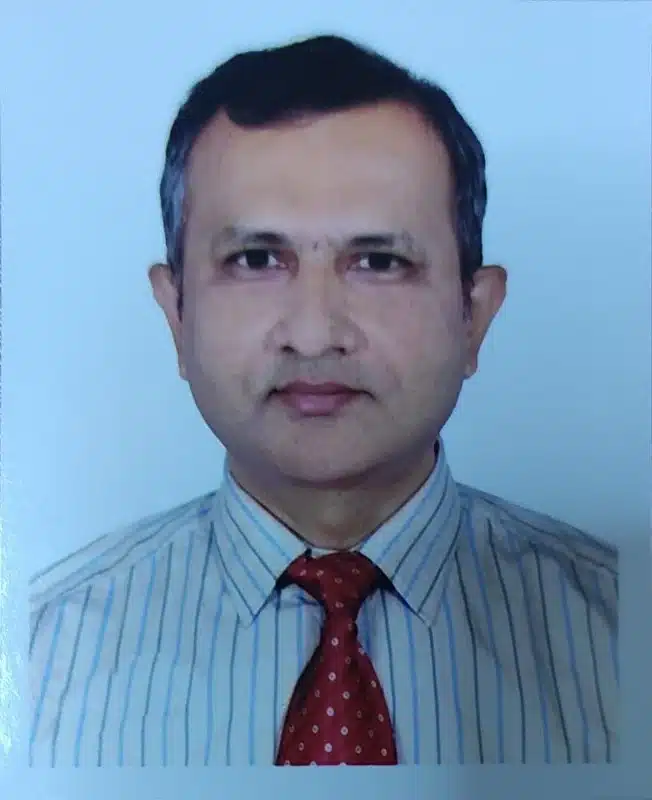
Touhidul Islam
Vice President
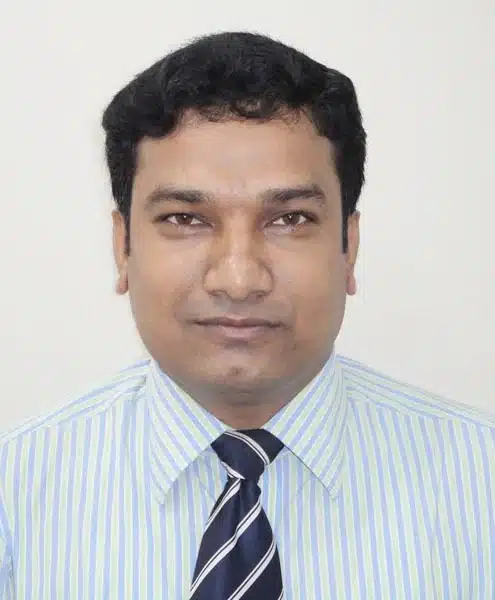
Md. Toufiqul Islam
Secretary General

Md. Alimuzzaman
Joint Secretary General
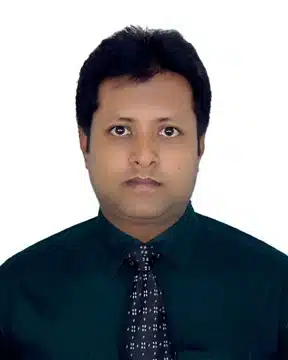
Md. Mahadi Hasan Sazal
>Secretary General
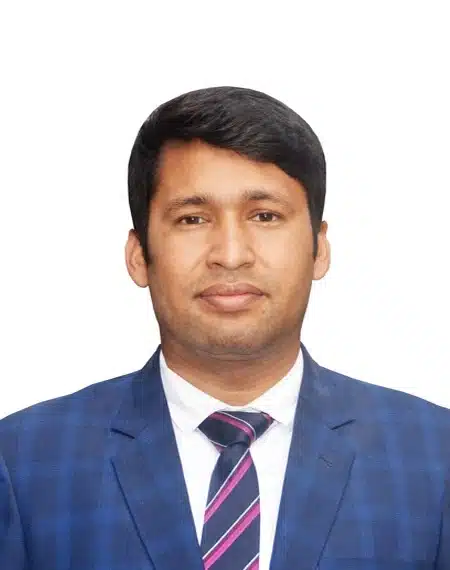
MD. Rasel Babu
Organizing Secretary
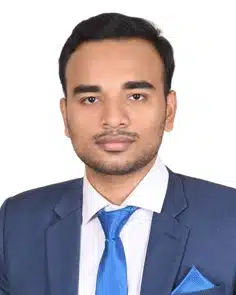
Wakil Ahmed
Sports and Cultural Secretary
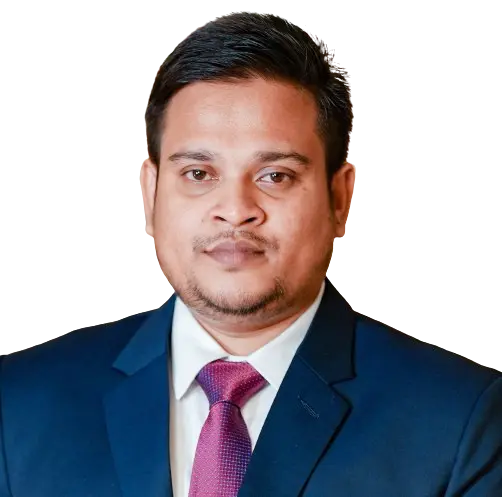
Jubayer Ahmed Bhuiyan
Education & IT Secretary
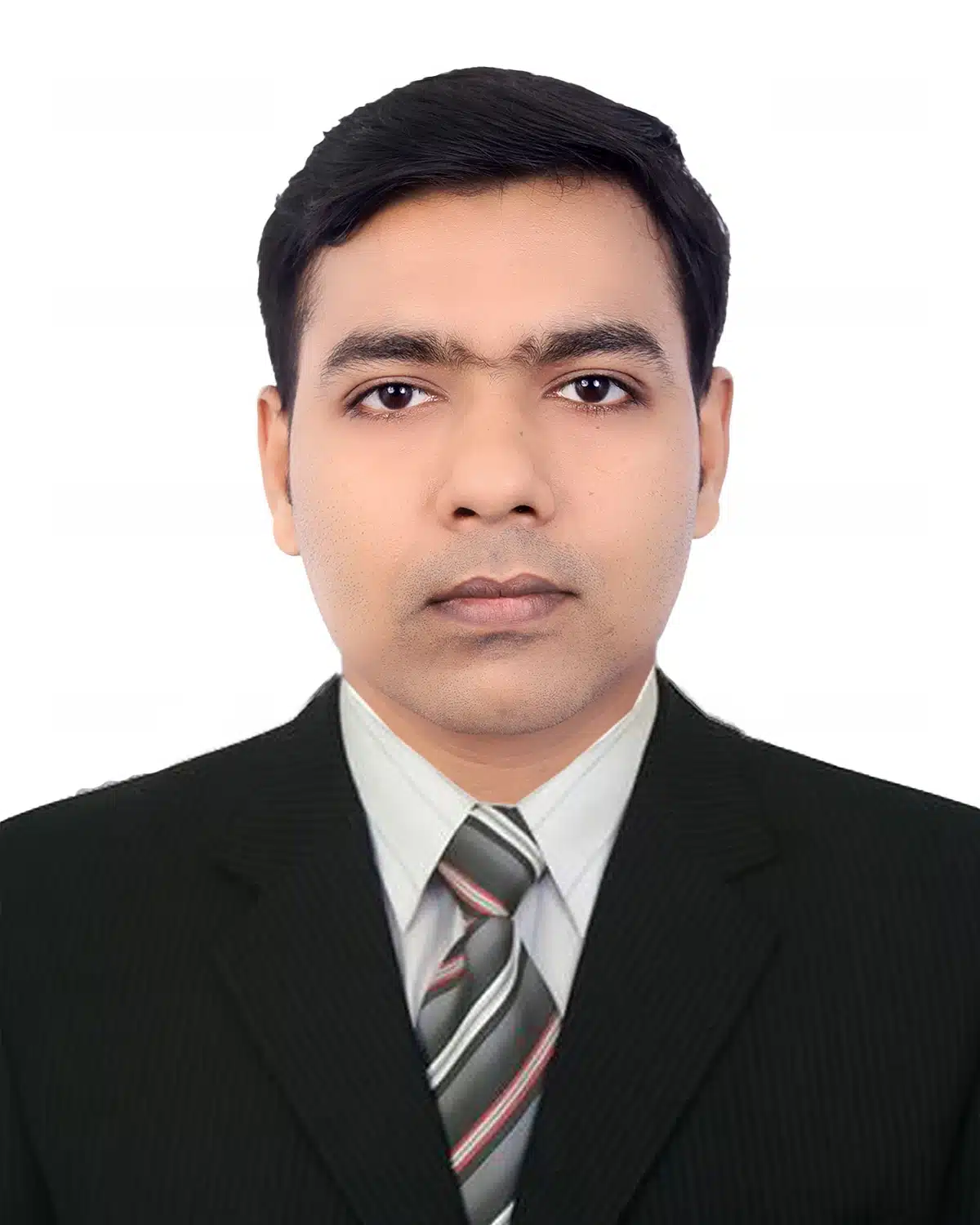
P.M. Rashedul Islam
Office Secretary
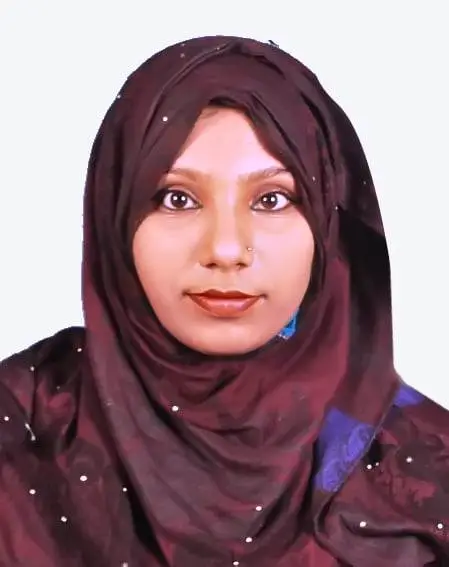
Israt Jahan Emo
Women Affairs Secretary
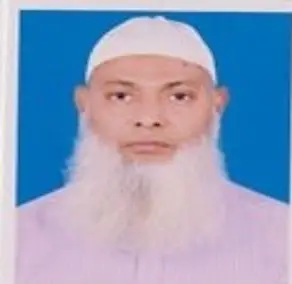
Md. Mostafa
Executive Member
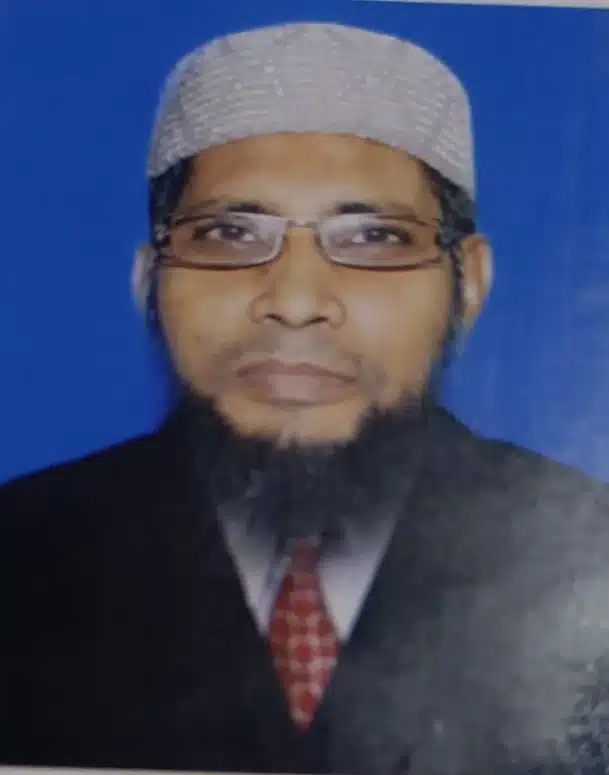
Md. Jahirul Islam
Executive Member
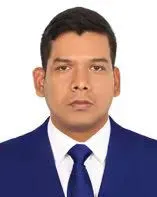
Mohosin Mia
Executive Member

Md. Palash Mia
Executive Member

Mohammad Abdul Mannan
Executive Member
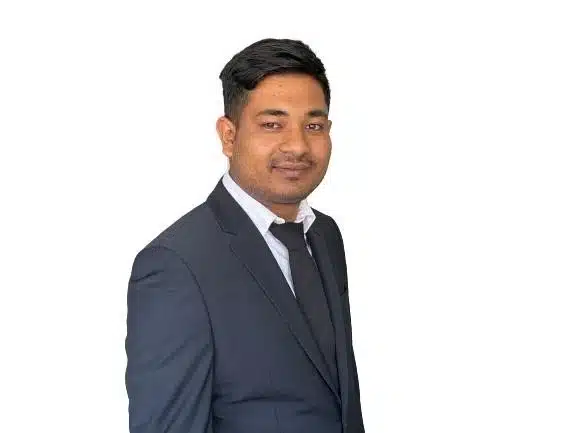
Khaled Bin Saifullah
Executive Member
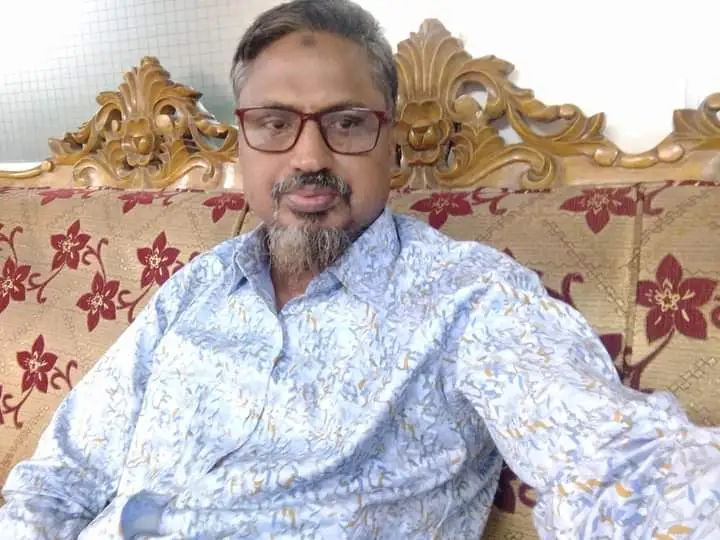
Md. Mogumder Rahman
Executive Member
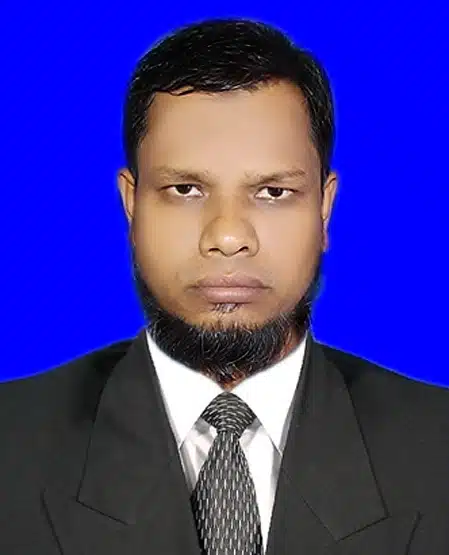
Shamsul Alam
Executive Member
EEE Alumni Association Advisory Committee
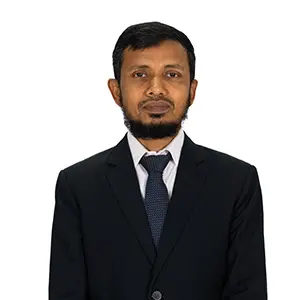
Dr. Md. Shakhowat Zaman Sarker
Professor and Chairman
Department of EEE
Advisor
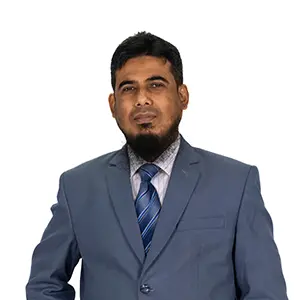
Md. Delwar Hossen
Associate Professor and Coordinator
Department of EEE
Convener
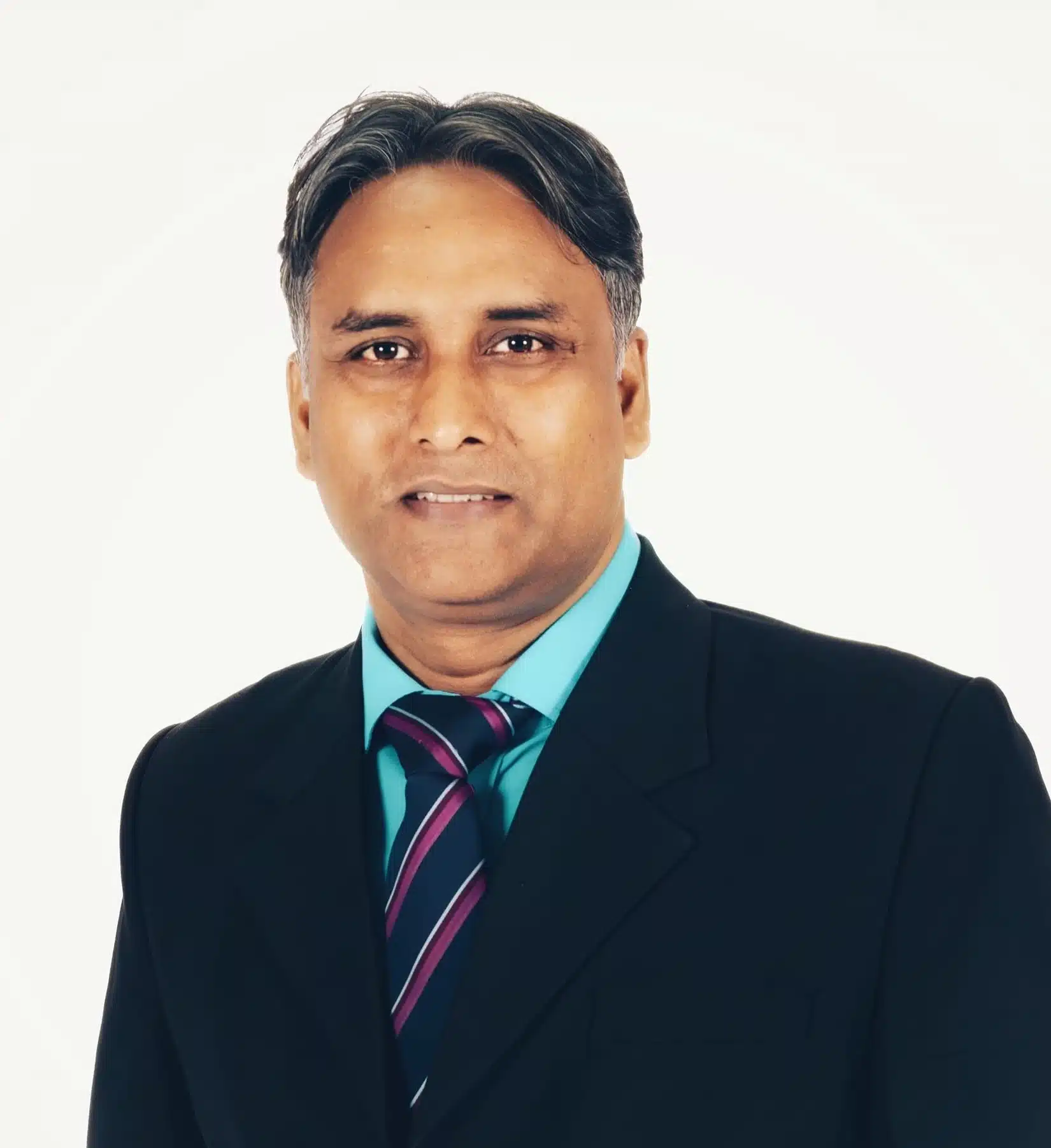
Md. Chand Ali
Assistant Professor, English
Department of EEE
Member Secretary
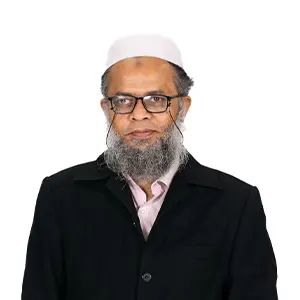
Md. Rezaul Karim
Assistant Professor
Department of EEE
Member
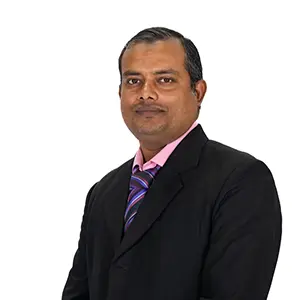
K. M. Abdul Al Woadud
Assistant Professor, Mathematics
Department of EEE
Member
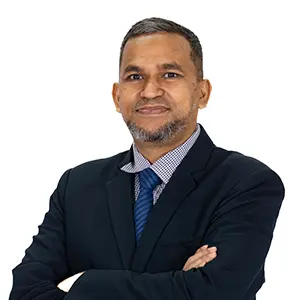
Dr. Kazi Sirazul Islam
Assistant Professor, GED
Department of EEE
Member
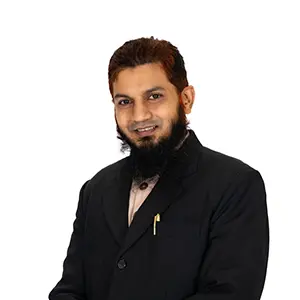
Asif Parvez
Assistant Professor, Physics
Department of EEE
Member
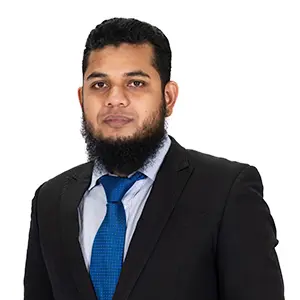
Ali Ahmed Ave
Lecturer
Department of EEE
Member
Please Enter
Your Personal Details
Staff of the Department of Electrical and Electronic Engineering
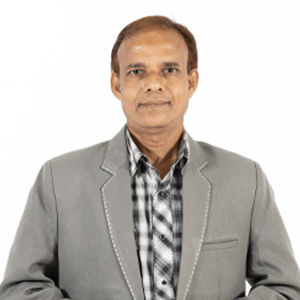
Contact and Location
Visit Us : Holding 77, Beribadh Road, Turag, Uttara, Dhaka 1230, Bangladesh
Mobile : 01872607360-69
E-mail : info@uttarauniversity.edu.bd
Loading...
